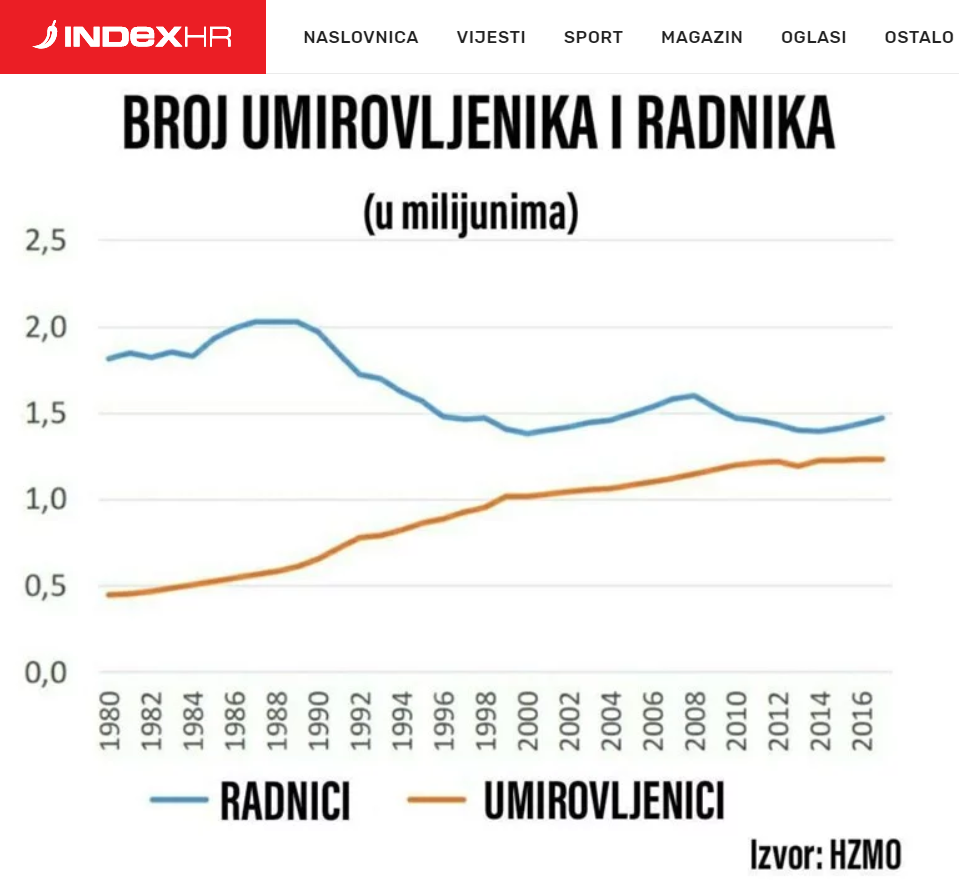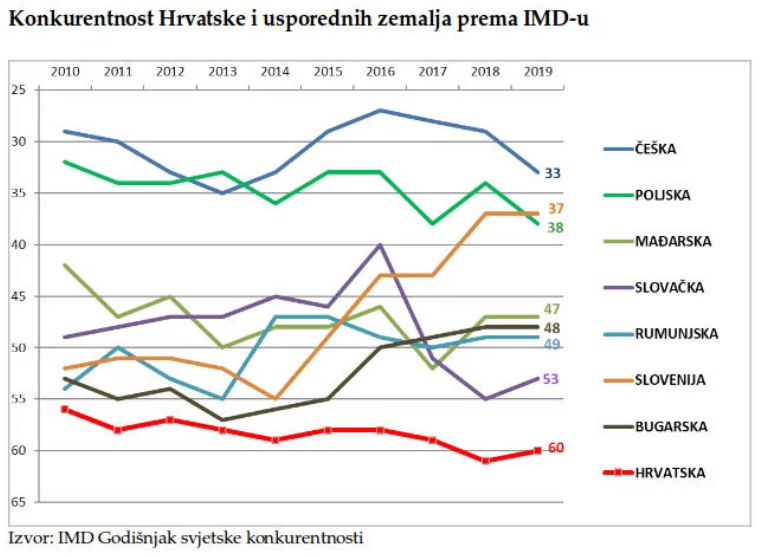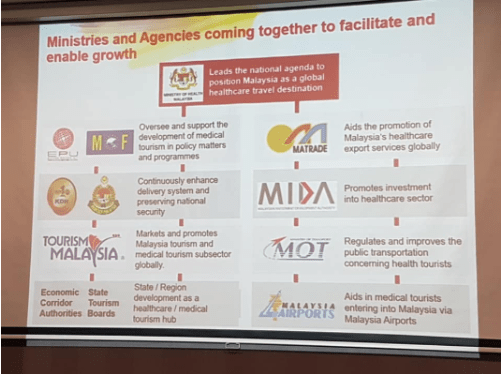Je li glupo i naivno misliti pozitivno o budućnosti Hrvatske?
Jedna od stvari koje sam kroz ove godine primijetio jest kako domaći i stranci različito percipiraju Hrvatsku, i kolikogod je takvo nešto prirodno u svakoj zemlji na svijetu, ovdje se percepcije razlikuju na daleko očitiji način.
Nalazim da je ispravno kazati da većinu posjetitelja Hrvatske impresionira njena ljepota i opušteni način života. Iskustva turista su općenito vrlo pozitivna, a upoznao sam i nekolicinu koji su zbunjeni zašto tako veliki broj mladih ljudi iseljava iz takve spektakularne zemlje Europske unije, sa toliko puno potencijala. Razumijem ih, i sam sam godinama o tome razmišljao, pa i nakon što sam preselio u Hrvatsku. Jedna demokratska zemlja u Europskoj uniji, s obrazovanim kadrom koji vlada engleskim jezikom, prirodni raj sa turističkom infrastrukturom koja može opslužiti gotovo 20 milijuna turista uglavnom na jadranskoj obali, toliko je razloga po kojima Hrvatska - barem na papiru - izgleda kao jedno od najljepših mjesta za život u Europi.
Kod mene su se stvari promijenile tek kad sam otkrio moćnu Državu Uhljebistan, o čemu možete pročitati na A Tale of Two Croatias: Before and After the Uhljeb Discovery.
No ipak, optimistični dojmovi većine stranih posjetitelja dijametralno su suprotni viđenjima većine lokalnog stanovništva. Oni koji se još nisu iselili nalaze da je situacija sve gora i gora, sa sve manje nade za uspješnu budućnost kod kuće - osim ako, naravno, nisu dijelom naduvenog birokratskog sistema koji omogućava udoban život, i to dobrotom opadajućeg broja sve jače porezima stiješnjenih poreznih obveznika.
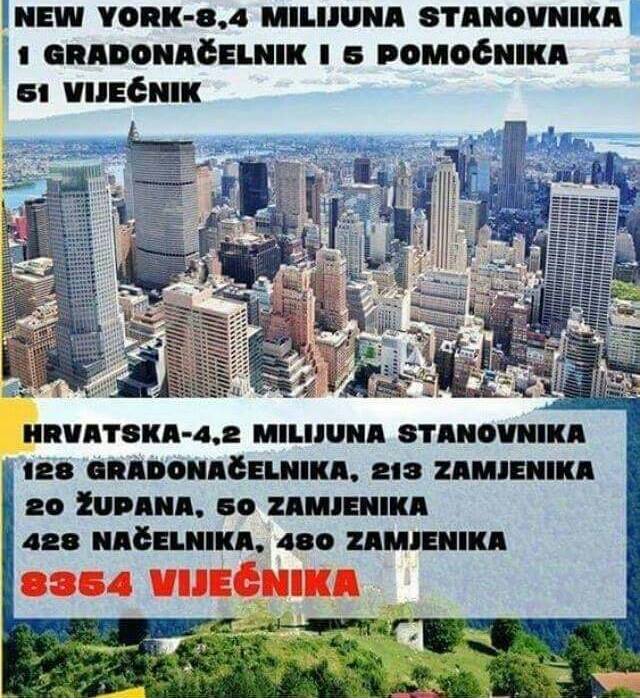
Gole brojke parazita koji se hrane na onima koji ostaju i rade mogu se ilustrirati na puno načina, no evo ovdje meni najdražeg snapshota za opis o čemu se radi. I dok brojke možda nisu baš 100% točne (nisam uspio provjeriti), sentiment bi trebao prenijeti poruku.
New York, grad sa 8.4 milijuna stanovnika, ima jednog gradonačelnika, 5 zamjenika i 51 gradskog vijećnika.
Hrvatska, zemlja za polovinom stanovništva New Yorka ( danas ustvari i manje, sa manje od 4 milijuna) ima 128 načelnika gradova sa 213 zamjenika, 20 župana sa 50 zamjenika, 428 načelnika manjih gradova i sela sa 480 zamjenika i ukupno 8354 vijećnika
Dok New York manje-više funkcionira, Hrvatska ne štima.
Očigledno rješenje bilo bi, naravno, srezati birokraciju i tako priskrbiti ogromne uštede državnom proračunu. Tako na primjer otok Hvar ima nešto manje od 11.000 stanovnika, ali i 4 lokalne uprave sa 4 načelnika i 5 direktora turističkih zajednica. Ukoliko bi se nešto promijenilo, problem bi bio situirati sve te ljude. Još kad se sjetiš da svaki državni posao hrani širu obitelj glasača koji nisu zainteresirani za ikakvo diranje u status quo, očekivati neke promjene u dogledno vrijeme gubi svaki smisao.
Osim ako Hrvatska ne uspije.
Osim napuhane i neučinkovite birokracije, još je puno pokazatelja koji bi trebali signalizirati da je propast na putu. Prema nedavnom pisanju Indexa, odnos zaposlenih koji plaćaju porez i umirovljenika pokazuje alarmantne trendove. Nekadašnji omjer od blizu 4:1, sada se približio omjeru 1.2:1. Osim broja redovnih umirovljenika, iz godine u godinu, čak skoro 25 godina nakon rata, raste i broj ratnih veterana. Trenutno ih je preko 500.000.
Značajnijih pokušaja reformi ikakve vrste nema. Kleptokracija nakon rata i klijentelizam koji paraliziraju zemlju nesmetano se nastavljaju, pa je pravo malo čudo da je Hrvatska rangirana kao 60-ta od 63 zemlje na nedavnoj IMD-ovoj listi svjetske konkurentnosti za 2019. godinu - tek ispred Argentine, Mongolije i Venezuele.
Gledajući na ovo gore više regionalno, jasno je da se Hrvatska bori, sa ne baš puno nade na horizontu. Nekoliko ljudi s kojima sam ovdje razgovarao mišljenja su da su promjene i novi početak moguće jedino ako sustav spektakularno propadne. Jedan od načina koji može ubrzati promjene je izgladnjivanje parazita koji uvelike doprinose svim problemima. Veliki zagovornik ovakve strategije je Matija Babić, vlasnik portala index.hr, i netko tko u Hrvatskoj razdvaja javno mnijenje kao rijetko tko drugi. Babića smatram dobrim prijateljem koji je mnoge udaljio od TCN, što je meni OK, jer - da mi je glavni cilj bio da me svi vole, vjerojatno se ne bih odlučio voditi portal vijesti sa razmišljanjima o Hrvatskoj.
Babića spominjem zbog njegovog ovotjednog članka pod naslovom U Hrvatskoj samo budale mogu biti optimisti. Članak je očito inspiriran još jednom konferencijom o brendiranju Hrvatske koja se je održala prošlog tjedna ( primjedba budućim organizatorima od nekolikih sudionika - ukoliko stvarno želite ostvariti pravi cilj hrvatskog brenda, morate izaći iz akvarija lokalnih stručnjaka i uključiti onaj ocean svjetskog znanja i pogleda). Na konferenciji je predsjednica Kolinda Grabar Kitarović, u izbornoj godini, da ne zaboravimo, pozvala na potrebu kampanje za optimizam u Hrvatskoj.
Kako je primijetio jedan sudionik - potrebu za kampanjom baziranom ni na čemu osim na političkom sloganu kao dijelu re-izborne kampanje. A obzirom na gore navedene sve gore i gore brojke, na čemu se točno misli bazirati optimizam? Babić je premjestio svoj posao i boravište u Bugarsku, gdje su porezi i birokracija nešto mekši, i pozvao druge da slijede njegov primjer. Promjena je moguća samo ako parazitima ukinemo prihod od poreza i svatko onaj koji na Hrvatsku i njenu budućnost gleda optimistiki, obična je budala.
I dok se naširoko slažem s Babićem, ja sam na primjer optimist glede budućnosti Hrvatske. Zbog čega sam moguće budala.
Čini mi se da će nažalost Hrvatska morati propasti da bi ponovo započela, kroz svakako bolan proces, mada ne bi baš nužno i trebala propasti. A ako i bi, postoji jedna gorljiva, iskusna i ekonomski snažna grupacija koja bi bila spremna sakupiti komadiće i resetirati hrvatsko gospodarstvo na manje socijalističkim i koruptivnim pravcima - hrvatska dijaspora. Ona koja trenutno šalje u Hrvatsku više novca od ukupnih stranih investicija, dijaspora je ekononomski super uspješna i jako je vezana za Hrvatsku. A to što je većina od njih otišla s malo više od košulje na sebi, čini njihov uspjeh još impresivnijim.
Nedavna konferencija dijaspore održana u Splitu bila je fascinanto mjesto za sve gostujuće muhe na zidu. Dijaspora je u velikoj dilemi, ili se barem meni tako čini. Investirati u Hrvatsku znači neminovno podupirati postojeći sustav kroz poreze, a oni žele pomagati svoju domovinu. Postoje razlozi za optimistično gledanje da bi nešto moglo stići iz njihove dinamike, ali ja nalazim dva još veća motiva za optimističnu budućnost Hrvatske - tehnologiju i mijene u prirodi svijeta.
Transparentnost i tehnologija igraju veliku ulogu u digitalnoj eri pa sam pred neko vrijeme pisao da će tehnologija, po mom mišljenju, s vremenom ubiti Uhljebistan (na što mi je prijatelj odgovorio da je izglednije da Uhljebistan ubije tehnologiju…). Uberova revolucija je pravi primjer na hrvatskoj drpačkoj taxi tržnici. No, tehnologija i transparentnost će stizati u državne institucije sve više i više. U stranim medijima jedva da je primijećeno, ali stvari počinju sa aplikacijom gradonačelnika Bjelovara na kojoj građani mogu transparentno pratiti financijske transakcije grada u stvarnom vremenu.na kojoj građani mogu transparentno pratiti financijske transakcije grada u stvarnom vremenu.
Zamislite da se to dogodi u Zagrebu…
Još veći optimizam, međutim, stiže iz nečega što je sasvim izvan hrvatske kontrole - iz promjenjljive prirode svijeta. Da je pred jedno godinu dana netko izjavio da će debate o klimatskim promjenama diktirati neka 15-godišnja školarka iz Švedske protestima protiv nečinjenja po pitanju krize svakog petka ispred švedskog parlamenta, grohotom bismo se smijali. Samo jednu naslovnicu Time Magazine-a i nominaciju za Nobelovu nagradu kasnije, i Školski štrajk za klimu Greta Thunberg poprimio je svjetski opseg i stavio klimatske promjene na vrh dnevnog reda političkih razgovora kao nikada prije.
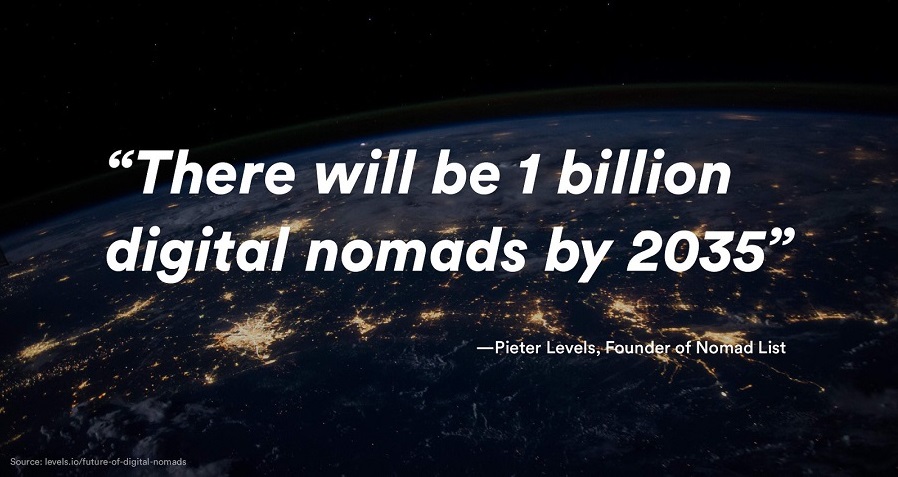
I kao što u globalnom svijetu jedna srednjoškolka može utjecati na globalne razgovore, tako i tehnologija i digitalizacija mogu promijeniti Hrvatsku.
Upravo dogovaramo iznajmljivanje našeg stana na Hvaru za slijedeće proljeće jednom paru iz baltičkih zemalja. Oba digitalni nomadi, tri proljetna mjeseca proveli su već u Hrvatskoj, kombinirajući svoj online posao sa uživanjem u za njih savršenom dijelu godine, u Hrvatskoj. Potrebe su im minimalne - dobra wi-fi veza, i mogu raditi bilo gdje. Hrvatska je njima idealno mjesto barem za 3 mjeseca godišnje. Divna priroda, nestvarno Jadransko more, fantastična hrana i vino, odlična optička mreža, svugdje se govori engleski, krasna klima, sjajan način života, puno prostora, lako daljnje putovanje bilo kamo u Europu i izvan nje.
Svoj posao mogu obavljati bilo gdje u svijetu, ali su oni odabrali Hrvatsku. Kroz ta tri mjeseca postat će i potrošači u dućanima, kafićima, restoranima i drugim poslovnim mjestima u Hrvatskoj. Vjerojatno će i pričati svojim prijateljima, digitalnim nomadima, kakvo su fantastično mjesto pronašli.
Predviđanja kažu da će do 2035. godine u svijetu biti otprilike jedna milijarda digitalnih nomada koji će, po prirodi posla i načina života, gotovo svi generirati novac.
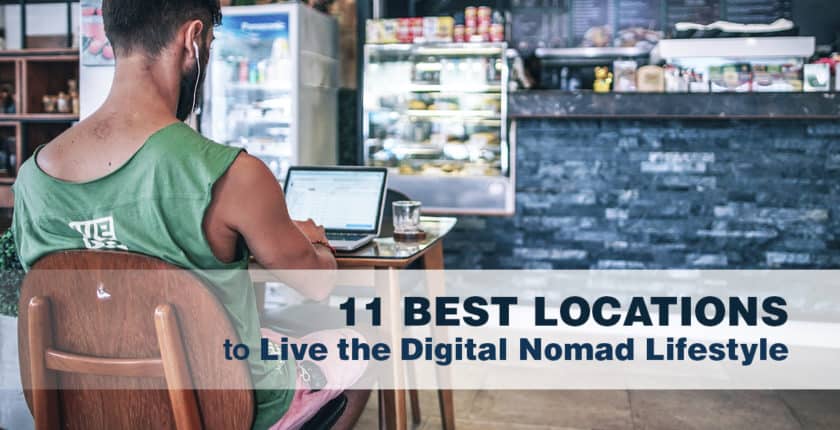
Zamislimo Hrvatsku poznatu kao jednu od 11 najpoznatijih mjesta za život i način života digitalnih nomada. Uhljebistan bi mogao i dalje postojati, ili ne, ali bi se transformiralo hrvatsko gospodarstvo.
Ako želite naći primjer u Europi gdje su digitalizacija i prihvaćanje digitalnih nomada promijenili gospodarstvo, ne treba vam tražiti dalje od Malte.
Ako gledamo u budućnost a ne unatrag, ima li baš tako puno zemalja u svijetu koje mogu savršenije iskoristiti ovu priliku od Hrvatske?
Naravno, takva neka strategija tražila bi dobrodošlicu boravka velikom broju stranaca u Hrvatskoj, nešto što sada nije slučaj, jer u Hrvatskoj trenutno živi manje od 30.000 stranaca, na 4 milijuna stanovnika .
Naravno, da bi Hrvatska prihvatila nomadsko digitalno gospodarstvo, potrebna bi bila neka akcija genija koji trenutno vode Hrvatsku, pa nemojmo uzimati nikakvu vrstu optimizma zdravo za gotovo. Zaboga, poznati su po tome što iz ralja pobjede izvuku poraz.
Je li glupo i naivno osjećati pozitivu za budućnost Hrvatske? Po parametrima tekuće situacije u Hrvatskoj, bez tehnologije i digitalizacije, svakako.
Je li glupo i naivno misliti o budućnosti Hrvatske uz digitalizaciju, tehnologiju i dijasporu?
Ovaj engleski glupan misli da nije.
Does Croatian Tourism Have a Plan B If Climate Change is Real?
Even though I live in Varazdin, I always know when it is raining in Split and on Hvar.
My Google Analytics Real Time shows two articles on the subject attracting hits as people who came for the sun and are met with the rain desperately search for some activity to replace the planned day soaking up the rays.
Both Hvar and Split have content even on a rainy day, but there are many destinations along the coast which essentially offer sun and beach, and very little else. With the Adriatic coast famous for its excellent weather in general, this was never really a problem. Tourists knew what they were getting, and the Croatian tourism strategy was little more than 'wait and they will come.' If tourists wanted sun and sea, Croatia had that in abundance with little effort. Locals built apartments en masse, and everyone was happy. And suddenly, Croatia found that 20% of its GDP came from relying on the cleanliness of the sea and those fabled blue skies.
But what if - as seems to be the case - climate change is real, and those idyllic temperatures and endless blue skies which are the bedrock of the Croatian tourism offer were to change?
It is no secret that freak weather is becoming more common. and perhaps Croatia's reliance on those faithful blue skies is a risky strategy. One only has to look around the storms that have occurred all over Croatia this week to realise that the old 99% guarantee of perfect weather is not looking as rock solid as it once was.
As a pink Brit, I personally feel that things are a lot hotter than they used to be. When I first moved to Dalmatia in 2003, there were four distinct seasons. Now it seems on the coast that we go from the winter into a hot summer, and those four seasons have become two. I don't think I am alone.
This is not an article about how bad this season could potentially be, although many destinations are reportedly far emptier (it should also be borne in mind that even if this season is 20% down on the last one, the continuous rise in the official statistics over the last few years will place things back to where they were a couple of years ago), it is more about what would happen if the prime attraction of Croatian tourism (the weather) which contributes to 20% of the country's GDP cannot be depended upon to deliver as it always has in the past. Not only would the numbers suffer, but so do the GDP and the economy.
You can see how several Croatian destinations have changed since 1969 and how they are projected to be in 2049 IF we stick to the Paris Climate Accord. Quite sobering, isn't it?
So does Croatian tourism have a Plan B? A strategy to diversify beyond slogans and strategy documents? And does it have enough content away from the beach to still attract tourists who cannot be as confident about the beach weather as they once were.
In theory, and in slogans and strategy documents, it does.
The Ministry of Tourism, for example, has committed to building 30 golf courses around Croatia between 2013 and 2020 in its strategic document. As we enter the second half of 2019 with 18 months to go, none have been started, and the only tangible development is a $500 million lawsuit against the State from a disgruntled Israeli investor from the Dubrovnik golf project.
We proudly learn that the original Zinfandel comes from just outside Kastela, and yet the famous wine region of Dalmatia does not have a wine road.
We are proud that Kings Landing is the home of Game of Thrones, a global superstar, and yet we have no sections about the hit HBO series on the websites of either Dubrovnik or Croatian National Tourist Board.
We are proud of the amazing quality and diversity of Croatian cuisine, and that the late, great Anthony Bourdain recognised Croatia's 'world-class food, world-class wine, world-class cheese' - and yet compared to similar gourmet destinations such as France, Germany, Italy and Spain, Croatia earns only a tiny percentage.
This season may be another record one for Croatian tourism (and official statistics for the first six months indicate this is the direction we are heading), or it may be sharply down on last year (as many are saying - and my evening out in Jelsa last night gives an indication of how busy things are there - see above (19:25) and below (22:00), but the bigger issue is where Croatian tourism is heading and how can it build more solid foundations in the event that climate change affects its prized jewel - its fabulous weather.
The good news is that Croatia has some excellent potential to develop its tourism industry without such a reliance on the coast and beach tourism, if the Kings of Accidental Tourism were able to consider a real strategy to develop tourism for the long-term. One of the comments I have been getting from many locals up and down the coast this month is how empty some of the beaches are - and how nice that is. There is space for locals to enjoy their local beach in the summer. Wouldn't it be nice if that could continue and we could also have great revenue from tourism.
We can.
Quite easily.
But it requires a little bit of a rethink and a reboot. I have already written about Branding Croatia for the Future: 5 Gifts and Trends to Focus On. You can read in more depth in that article, but the key components of a diversified, more secure tourism future for Croatia, which will move the country away from mass tourism are the following:
1. Medical tourism - many experts agree that Croatia has the potential to be in the top 10 medical tourism destinations in the world within 10 years. In the world. If only their officials could unite. In addition to Croatia's clinics of excellence attracting health tourists, many of those patients would stay to recuperate. Medical tourism is an industry which is only going to get bigger. Croatia is in a great position to take advantage.
2. The digital nomad revolution. With some one billion digital nomads projected to be working remotely by 2035, Croatia is again perfectly situated to take advantage. Nomads come at different times of the year, generate money to fund their nomadic lifestyle and spend in the local communities where they stay. There is a LOT of buzz about Split as a new digital nomad destination right now - and the nomads are already here. You can meet some of them in our dedicated section.
Imagine if Croatia, with its fantastic lifestyle and so many other advantages, could attract just 2% of that billion for part of the year. 20 million nomads, more than the current number of tourists visiting Croatia each year.
And if little Estonia can do, surely Croatia can too? Check out how and why Estonia is attracting so many international visitors in the video above and also in Lessons from Estonia: Farewell Uhljebistan, Welcome to the Future?
3. Embrace the future and technology. Croatia is the land of Rimac and the birthplace of Tesla - two incredible icons of technology. Manchester United has the Theatre of Dreams at Old Trafford. Turn Tesla's birthplace in Smiljan into something outstanding. Most tourists come to Croatia by car and there will be 21 million electric cars on the road by 2030. Build the temple, celebrate technology, educate, build Tesla-inspired attractions. And those joining the electric vehicle revolution will have reasons to visit one of the most important focal points - the birthplace of Tesla.
4. Capitalise on Croatia's phenomenal sporting success and natural beauty. The 2018 World Cup success was one of the greatest tourism gifts ever, one which Google Trends tells us was wasted. But there are so many other ways to attract sport to Croatia and the healthy lifestyle. That wonderful Croatian lifestyle. Learn from - and support - great initiatives such as the Run Croatia project, which is developing year-round tourism to Croatia. Learn more about it here.
And we haven't mentioned the beach once.
And if golf is your thing, build a couple of those golf courses, but try not to get sued for 500 million each time.
And maybe create that Dalmatian wine road rather than just telling people about the original Zinfandel. Tourists apparently like content once they arrive.
And use that fabulous Bourdain promotion and put action into words - Croatia should be getting close to the gourmet tourism revenues of its European neighbours. Pay some consultants to figure it out for you if you don't have the knowledge.
Several very simple ideas, all of which are not weather dependent and move Croatia away from its crazy obsession with cruise ships and mass coastal tourism.
And if climate change is a hoax, all the better - and there will also be plenty of space for locals on the beach.
Successful Diaspora Returnee Stories: Daniela Rogulj, Total Croatia News, Split
June 18, 2019 - TCN's recent series featuring the successful returnee stories from the speakers at the recent diaspora tourism conference in Split led to several requests for more of the same. And so we continue in the same vein, looking at more people who have made the successful switch back to the Homeland, starting with TCN's very own Daniela Rogulj, who made the switch from California to Split.
1. You are from California, returned to Croatia, something that many diaspora dream of doing. Tell us briefly about your journey.
It all happened by accident. In a nutshell, I came to Croatia via San Diego, San Francisco, Nashville, and London. I was born and raised in San Diego to a mother from Metković, father from Split, a grandfather from Prapatnica and grandmother from Stari Grad on Hvar. I moved to San Francisco for University, managed a cupcake shop, graduated, played a part in the tech industry, started developing my own mobile app and said bye to it all at 23 for Nashville and eventually London.
After impulsively crossing the pond with my parents at 24, which saw me nearly overstay my six months as an American in the U.K., I needed a solution, and fast. I went back to California to get my birth certificate amended (my last name was spelled ‘Roguli’ instead of ‘Rogulj’), so I could begin the process of obtaining my Croatian citizenship to ensure I could remain living in London. Let’s just say that upon my return back to Heathrow, the immigration officer was having a bad day, and back to California, I went. Over the next few months, my parents decided to move back to the homeland and settled in Split. I visited them in Split the summer of 2015 without the faintest idea that it would be my home for the next four years.
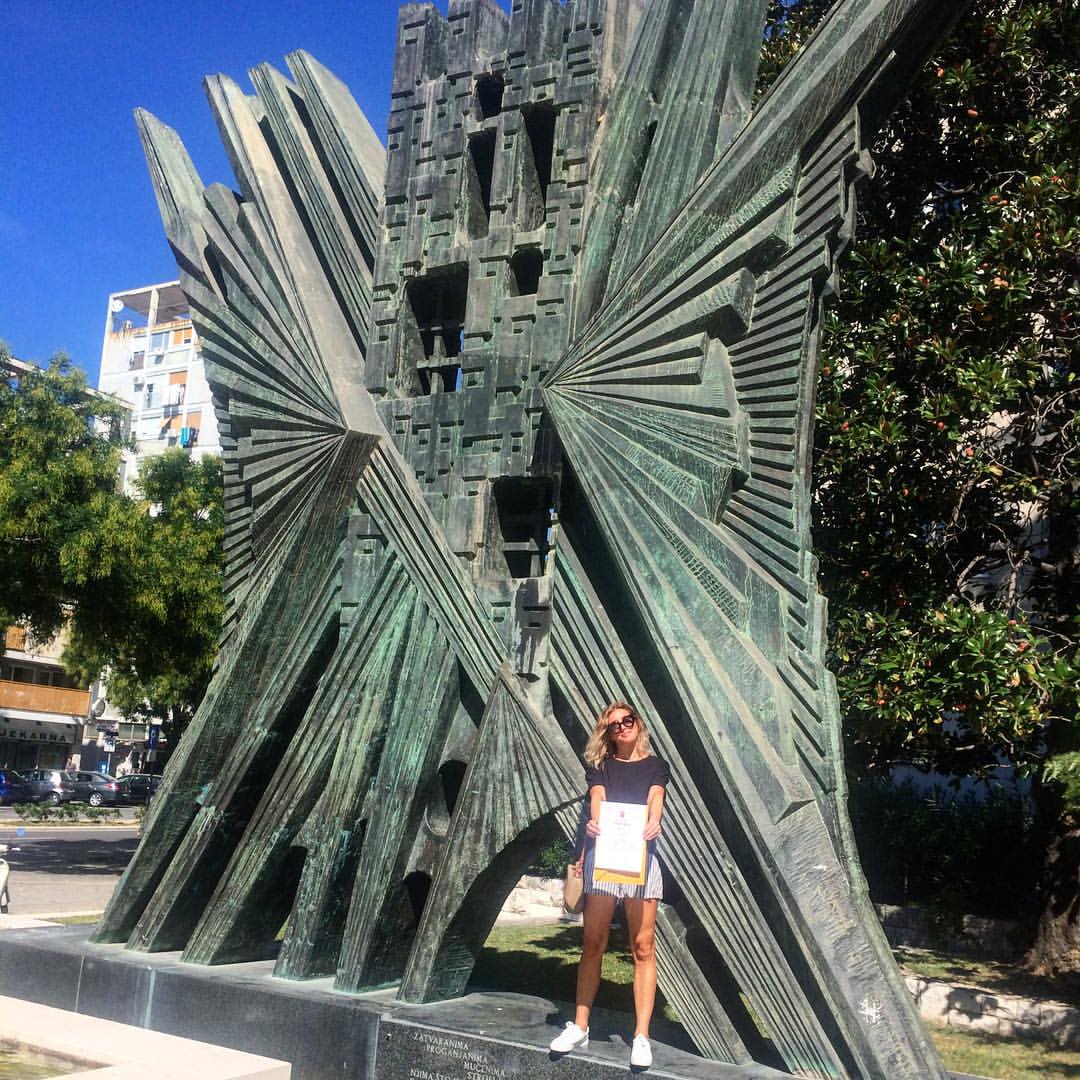
The day Daniela became a Croatian citizen
My first 10 or so months in Split were spent trying to meet people while figuring out what I would here. A job at Total Split popped up on my Facebook feed in April 2016, and considering I studied journalism in college and was the token blog writer for the San Francisco startups I worked for, I gave it a shot. I joined Total Croatia News in May of 2016 to lead Total Split, and that’s when my life in Croatia really began.
Not only did TCN open a world of doors for me, with invites to exclusive events and excursions to explore the gems of Croatia, but I've had the chance to meet (and befriend) innovative business and restaurant owners around the country, many of whom are in the diaspora community. It's also given me opportunities I never thought possible - at least not possible for me in the United States. Like following Hajduk from Split to Liverpool, or the Croatia national team from Zagreb to London. My work for TCN during the World Cup last summer was recognized by the largest sports radio station in the world, and I found myself as the Croatian correspondent for various radio shows in the UK last year - the BBC even called me for an interview. I marked my third year with TCN last month (thanks Paul & team).
2. Looking back, what were your hopes, expectations and fears about moving to Croatia?
Maybe it’s best that I didn’t have many considering I had no plans to live here at all. After I received my citizenship that summer (which surprisingly took a painless two weeks in Croatia compared to a year of torture in London and the US), I must have told my parents every day that I would not be calling Croatia my home and furiously looked at apartments and jobs in Berlin or anywhere but Croatia. To me, Croatia was my summer home; where life stopped when the seasons changed. I didn’t know Croatia past the warm and lively summer season, and I wasn’t interested in finding out.
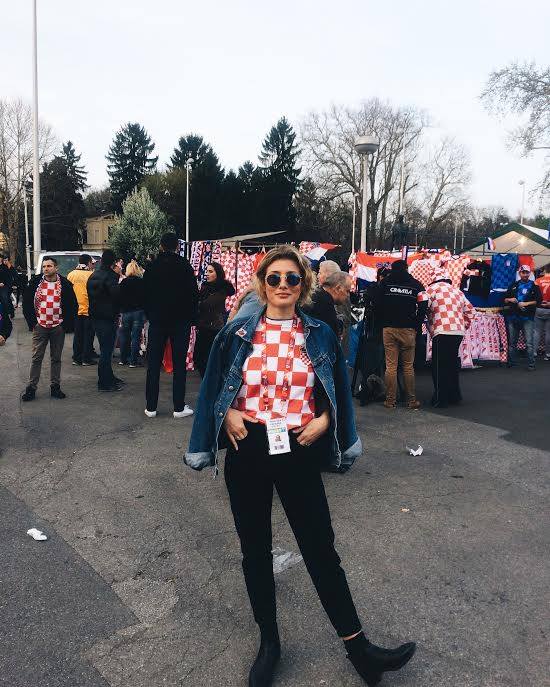
But after the summer settled that September and I celebrated my 25th birthday on a mild Split day, something changed. Split wasn’t just the transit hub I knew to get to Hvar or the pitstop my family would make for a Hajduk game. Split was a spirited city - and at the time, it was experiencing a new renaissance. I told myself I’d be a fool not to give Split a chance, and perhaps my biggest fear then was not knowing the slightest bit of what lay ahead. I was lucky to be young enough at the time to fail and start over again 100 times, and I guess I expected that much. I was worried about meeting people, if the language barrier would make it harder, and what job I would do in Croatia at all. I had experience in the tech industry, which at the time I had no idea even existed in Croatia, and I knew I wasn’t comfortable jumping into an office job in a working culture I knew nothing about. The one upside about moving here without a clue of what I’d do is that it forced me to get out, meet people and begin the conversation. This settled my fear and slowly made me more and more comfortable with my decision to stay here.
3. How supportive was your Croatian community back home at the time?
My Croatian community back home consisted exclusively of my extended family, and I remember some of them expressing mixed feelings about it all. The ones that knew Croatia well wondered what I’d do here. “You’ll make significantly less than you did in San Francisco, and you have no idea what it’s like in the winter!” I’m sure even today some of them think I’ll come back to the States, which isn’t in my plans whatsoever.
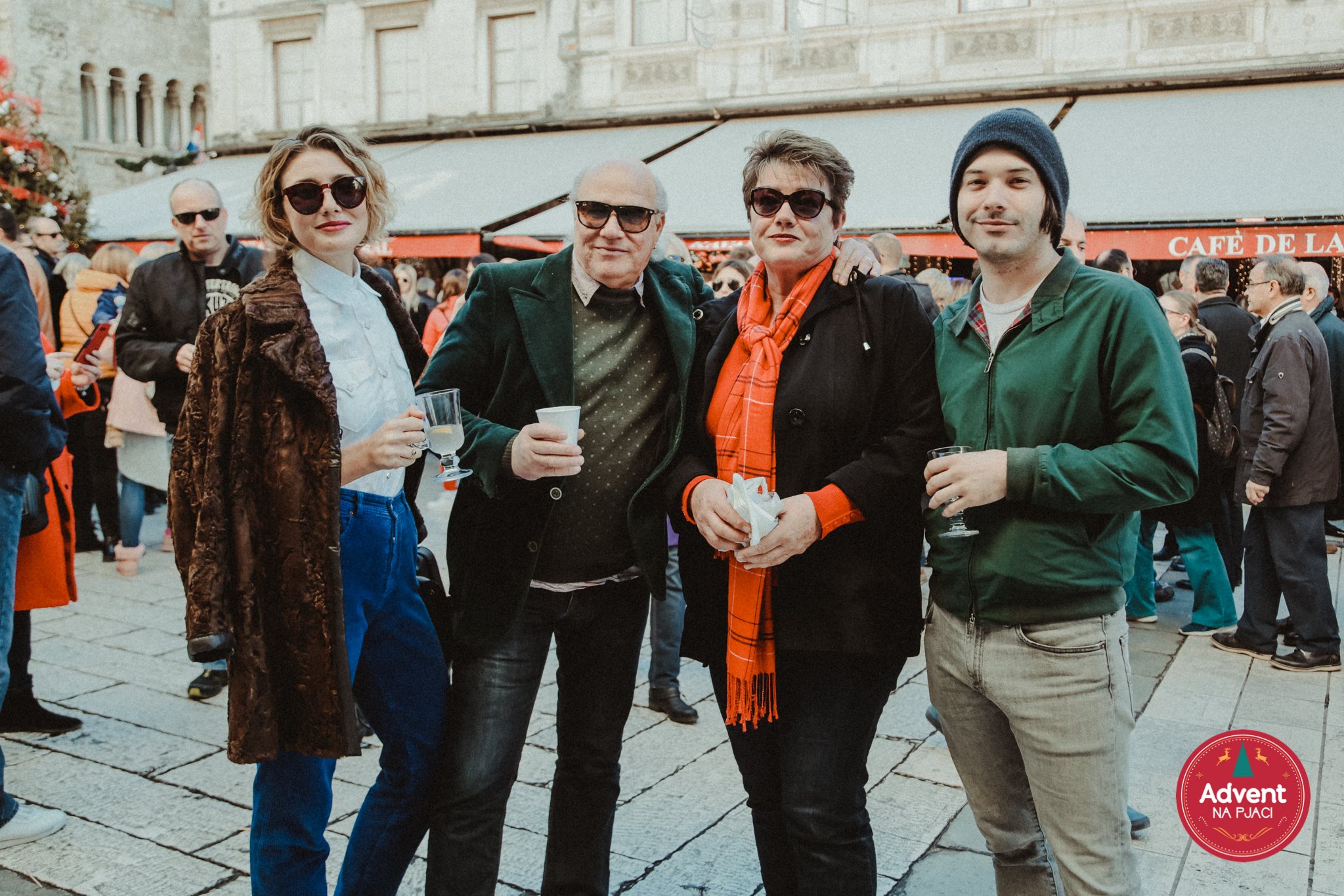
My immediate family has supported me unconditionally throughout my journey, and I owe them the world for that. It certainly helped that my parents were by my side as I started my journey in Split.
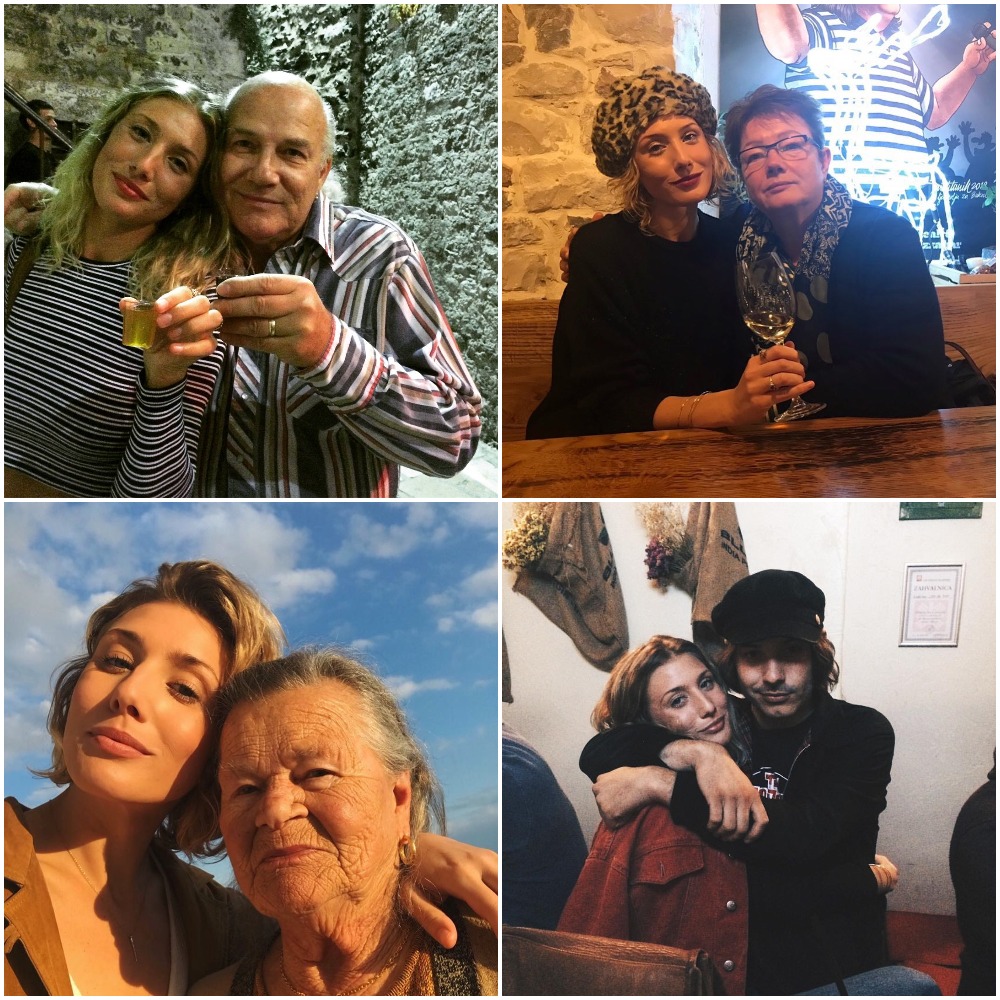
Because I never officially announced that I was moving to Croatia, and just proceeded to stay after that summer, I think I missed a lot of the pressure and criticisms there could be otherwise.
4. What were the main differences in what you expected to find in Croatia and the reality of living in Croatia?
Learning to live seasonally. Something I cherish now, but struggled with when I couldn’t find tomatoes my first winter here. But also adapting to the seasons in general - spring is the warm up, summer is the peak when you're too busy to breathe, autumn is reserved for unwinding from the season, as is winter, but everything in the winter is closed. Seasons don’t exist in California, so this took some getting used to.
The pace of life, in general, is another one. While it’s easy to adapt to the lax mentality in Dalmatia when you’re holidaying here in the summer, it throws you for a loop when you’re living here permanently and trying to get things done. Though it has its perks, and I’ve definitely adopted the ‘pomalo’ way in some aspects of my life, like learning to walk at a considerably slower pace than my city days in San Francisco. And to-go coffee is a thing of the past.
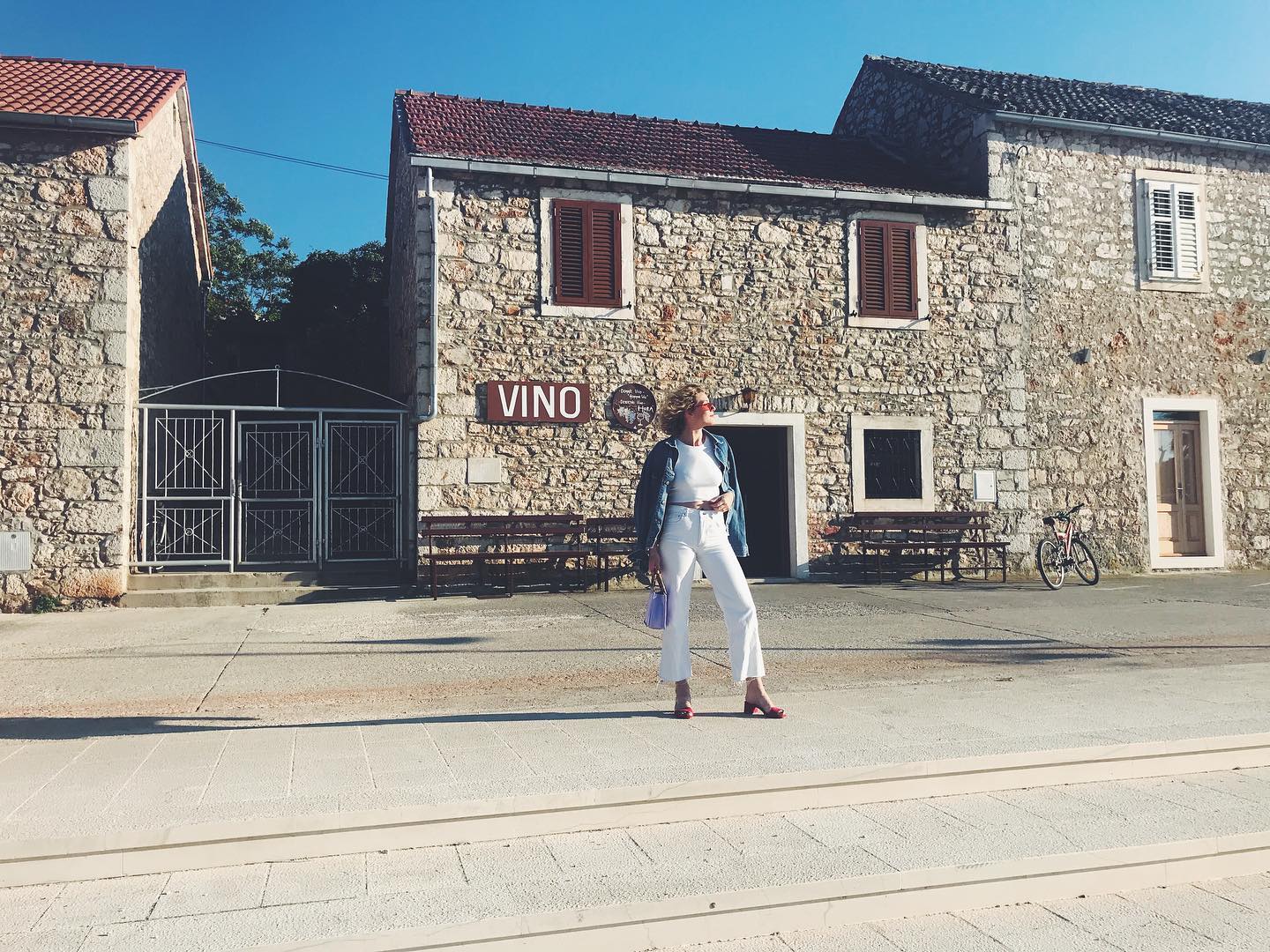
Furthermore, America is the land of customer service, and you learn pretty quickly that Croatia is not. Though I still tip as I would in the States hoping that this small nod to good service can be an example for others.
A monumental difference is how safe Croatia is. Ditching the pepper spray from my city days for the uninterrupted late-night walk home is a massive bonus. You also get the feeling that the people around you will lend a helping hand, without asking any questions.
4. Many diasporas think of returning but few do. In truth, there is little information out there about real-life stories and help/info about the process. What advice do you have for those who are thinking about making the move?
Be patient, take a lot of deep breaths, stay here in the winter or a good part of the offseason, and try not to compare it to back home. Coming here with a plan is probably smart, though you have to expect that plan will be altered, edited, amended, adjusted, and most likely rewritten at least once. On the contrary, I had no plan and really no idea, and still managed to find my way.
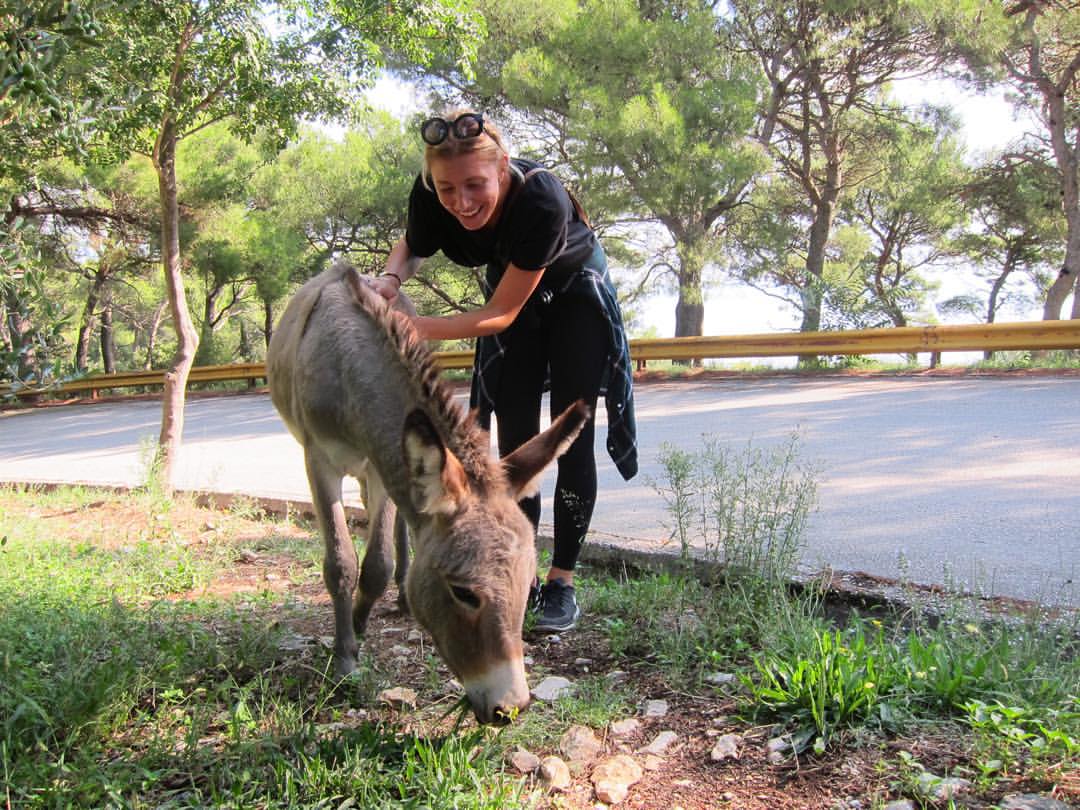
While it's nearly impossible for us stubborn Dalmatians, ask for help, because you’ll be surprised to find how many people have already been through what you’re going through. And if they don’t have answers, they’ll at least lead you in the right direction.
But really, deep breaths and the willingness to endure uphill battles is a must, though coming out on the other side is incredibly rewarding. Come determined and try to weed out a lot of the negativity you'll hear - it's not always true, and remember, we do love any reason to complain.
5. How were you perceived in Split as diaspora moving back - was the welcome warm?
“Why in the world would you leave California?” If I had a lipa for every Uber driver’s baffled expression when I tell them I live here permanently…
On the upside, it does open a platform to educate Croatians thinking of leaving that life isn’t always greener on the other side.

But yes, the welcome was warm, and you quickly learn that there are a lot of others just like you; a lot of others who took the leap to live here. And that is a feeling of comfort by itself.
6. Through a lot of hard work, you have been very successful, while many foreigners have given up and left Croatia. What are the keys to success in doing business in Croatia in your opinion?
Learn the importance of having a bubble (and when to come out of it), persevere (the American work ethic definitely pays off here), and keep a supportive group of like-minded people close. Try not to let people know too much too quickly and be careful with who you let in. Testing the waters is key. Acclimating to how the locals operate to ease your daily frustrations is equally as important. And if you're lucky to have just a few run-ins with the beauty of Croatian bureaucracy while you're here, consider that a great success.

Daniela on-air with Talk Sport at their studio in London.
7. What is the diaspora community like in Split and how integrated is it with locals?
I’d say that Split has a reasonably large diaspora (and expat) community. From the events I’ve been to, there seem to be more ‘foreigners’ than locals. The expat group holds book swaps, coffee meetups and pizza nights, while the 'Croatian Australians & NZers and Friends in Split' group organizes outings for Anzac Day and the like. I believe that keeping a healthy balance of locals and expats is crucial to creating the harmony you need in Split.
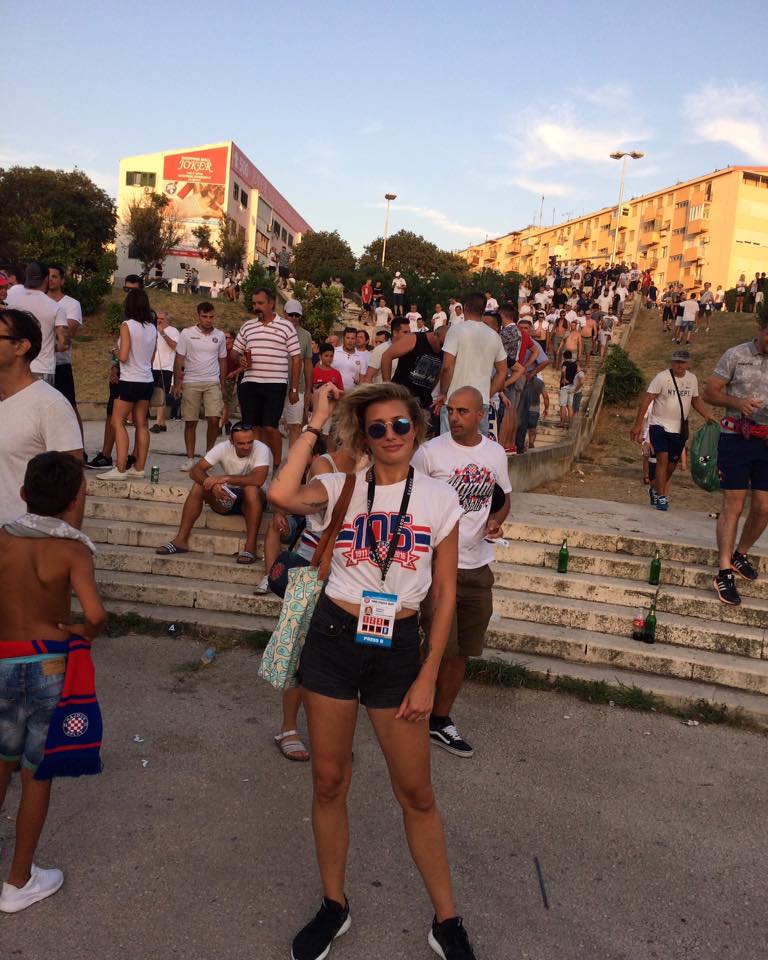
8. And finally, 3 things you would change in Croatia?
The drivers - do pedestrian crossings mean anything in Croatia?
Talk about the war - which I am surprised to see discussed often in the diaspora community. We will never move forward by looking back.
The amount of time it takes to get anything done. From the beloved Croatian bureaucracy to checking out at a grocery store. You quickly get used to the delay, and while I enjoy that waiters don’t rush to bring you your bill after coffee, it’s another story when paperwork is involved, or you’re at the bank or just trying to keep anything to a schedule. Schedules don’t really exist here, and neither does the concept of being ‘on time’. Remember, "I'll be there in 5 minutes" usually means at least 30 and probably an hour. Welcome to Dalmatia. It has its perks.
For more on the Croatian diaspora, check out the TCN dedicated section.
Are you a returnee who has moved back to Croatia and would like to be featured in this series? Please contact us on This email address is being protected from spambots. You need JavaScript enabled to view it.
Is It Stupid and Naive to Be Positive About Croatia's Future?
One of the things I have noticed over the years is how differently foreigners and locals perceive Croatia, and while that is natural in every country in the world, the perceptions are much more markedly different here.
I think it is fair to say that the majority of visitors to Croatia are impressed by its beauty and relaxed lifestyle. The experience of a tourist visit is generally very positive and I have met several tourists who are confused at why so many young people are emigrating from such a spectacular EU country with so much potential. And I can completely understand the way they feel, for I was of the same opinion for many years, even after moving to Croatia. A democratic country in the EU, with a skilled and English-speaking workforce, a natural paradise with tourism infrastructure to cater to almost 20 million tourists largely to its Adriatic coast, there are so many reasons why Croatia - on paper at least - looks to be one of the best places to live in Europe.
Things only changed for me when I discovered the mighty State of Uhljebistan, as you can learn in A Tale of Two Croatias: Before and After the Uhljeb Discovery.
And yet, the optimistic impressions of most visitors is diametrically opposed to the viewpoint of the majority of locals. Those who have not already emigrated see the situation getting worse and worse, with less hope for a successful future for Croatia - unless, of course, they are part of the bloated bureaucratic system which provides a comfortable lifestyle, courtesy of a declining number of increasingly tightly-squeezed taxpayers.

There are many ways to illustrate the sheer numbers of parasites feeding off those who remain and work, but this is my favourite snapshot to illustrate the point. And while the numbers may not be 100% correct (I have not been able to confirm the exact amounts), the sentiment should get the message across.
New York, a city of 8.4 million inhabitants, has one mayor, 5 deputies and 51 city councillors.
Croatia, a country with half that population (actually less these days, now under 4 million) has 128 city mayors with 213 deputies, 20 regional governors with 50 deputies, 428 mayors of smaller towns and villages with 480 deputies, and a total of 8354 councillors.
And New York works, more or less, and Croatia doesn't.
The obvious solution, of course, would be to slash the bureaucracy and bring huge savings to the State budget. The island of Hvar, for example, has a population of less than 11,000 people but it is governed by four local administrations and has 4 mayors and 5 tourist board directors. The problem, with change, however, is you would need to get those very people on board. And when you consider that every state job feeds a wider family of voters with no interest in upsetting the status quo, there is no reason to expect change any time soon.
Unless Croatia was to fail.
And there are several indicators which would indicate that failure is on course, apart from the bloated and inefficient bureaucracy. As Index reported recently, the ratio of tax-paying workers to pensioners is showing an alarming trend. A ratio which was once close to 4:1 is now closer to 1.2:1. In addition to the regular pensioners, the number of war veterans continues to rise, year on year even almost 25 years after the war. Today the number stands at over 500,000 veterans.
There have been no meaningful attempts at any kind of reform. The kleptocracy after the war and the cronyism which paralyses Croatia today continues unabated, and it is little wonder that Croatia was ranked 60th out of 63 in the recent IMD World Competitiveness Ranking 2019 - ahead only of Argentina, Mongolia and Venezuela.
Taking a more regional view, above, it is clear that Croatia is stuggling, with not a lot of hope in sight. Several people I have spoken to here have said that the only real solution to bring change and to start again is for the system to fail spectacularly. One way to accelerate that change would be to starve the parasites which are contributing hugely to the problem. A big proponent of this strategy is Matija Babic, owner of Index.hr, and someone who divides opinion in Croatia like few others. I consider Babic a good friend, which has alienated a number of people from TCN. I am ok with that, as if my main goal was to be liked by everybody, I probably would not have chosen to run a news portal with an opinion about Croatia.
The reason I mention Babic is due to an article he wrote this week called Only Fools Can Be Optimistic in Croatia. The article was seemingly inspired by yet another conference on the branding of Croatia last week (note to future organisers from feedback from several participants - if you want to truly achieve the right goal of Croatia's brand, you need to get out of the fishbowl of local experts and include the ocean of international knowledge and viewpoints). During the conference, President Kolinda, Grabar-Kitarovic, in an election year let's not forget, called on the need for a campaign of optimism in Croatia.
A campaign for optimism based on nothing more than a political slogan as part of the reelection campaign, said one participant. And with the figures mentioned above all getting worse, optimism based on what exactly? Babic has moved his business and residence to Bulgaria, where the taxes and bureaucracy are much more favourable, and he has encouraged others to follow suit. Only by denying the parasites their tax revenue can change come, and anyone who is optimistic about Croatia and its future is a fool.
And while I broadly agree with Babic, I for one am optimistic about Croatia's future. Which probably makes me a fool.
I think Croatia sadly may have to fail to start again, which would be a very painful process, but it would not need to fail necessarily. If it were to fail, there is a passionate, experienced and economically powerful group who would be ready to pick up the pieces and reset the Croatian economy along less socialist and corrupt directions - the Croatian diaspora. Currently sending more money back to Croatia each year than the country is receiving in foreign investment, the diaspora are overachievers economically and have a strong bond to Croatia. That the majority of them left with little more than the shirts on their backs makes their achievements all the more impressive.
The recent diaspora conference in Split was a fascinating place to be a foreign fly on the wall. The diaspora have a huge dilemma, at least in my opinion. By investing in Croatia, they are necessarily supporting the current system through taxation, but they want to support their homeland. There is reason to have optimism that something can come from this diaspora dynamic, but I think that there are two bigger reasons for optimism for Croatia's future - technology and the changing nature of the world.
Transparency and technology are playing a greater role in the digital age, and I wrote some time ago that technology will, in my opinion, kill Uhljebistan in time (to which a friend replied that it was more likely that Uhljebistan would kill technology...). The Uber revolution is a case in point in Croatia's rip-off taxi market. But technology and transparency will increasingly come to State institutions. It was hardly reported in international media, but things are starting, with the Mayor of Bjelovar launching an app where citizens can transparently track all financial transactions of the city in real time.
Imagine if that came to Zagreb...
But the bigger optimism comes from something totally out of Croatia's control - the changing nature of the world. If someone had said a year ago that the climate crisis debate was now being dictated by a 15-year-old Swedish schoolgirl who protested about the inaction to the crisis by striking from school each Friday in front of the Swedish parliament, we all would have laughed. One cover of Time Magazine and Nobel Peace Prize nomination later, and the Greta Thunberg School Strike for the Climate has taken on an international scale that is putting climate crisis at the top of the political agenda as never before.

And, in a global world, just as one schoolgirl can influence a global debate, so too can the influence of technology and digitalisation transform Croatia.
We are in the process of renting our apartment on Hvar to a couple from the Baltic States for next Spring. Both digital nomads, they spent three months in Croatia this Spring, combining their online work with enjoying the perfect time of year - for them - in Croatia. Their needs are minimal - a great WiFi connection, and they can work from anywhere. For them, Croatia is an ideal place to be for at least 3 months of the year. Great nature, the fabulous Adriatic Sea, fantastic food and wine, culture, great fibre optics, English widely spoken, great climate, superb lifestyle, plenty of space, easy onward travel to anywhere in Europe and beyond.
They can do their business anywhere in the world, but they chose Croatia. During those three months, they will spend in the shops, cafes, restaurants and other businesses in Croatia. They will probably even tell their digital nomad friends about what a great place they have found.
The predictions are that there will be one billion digital nomads - who almost all generate money by the nature of their business and lifestyle - by 2035.

Imagine if Croatia became known as one of the 11 best locations to live the digital nomad lifestyle. Uhljebistan could continue to exist or not, but the Croatian economy would be transformed.
If you are looking for a concrete example in Europe where digitalisation and the embracing of the digital nomad has transformed the economy, look no further than Malta.
If we look to the future and not backwards, are there seriously many countries in the world which are more ideally placed than Croatia to take advantage?
Of course, such a strategy would require welcoming a large number of foreigners to reside in Croatia, something that is not happening at the moment, and there are currently less than 30,000 foreigners living full time in Croatia in a population of 4 million people.
Of course, for Croatia to embrace the digital nomad economy, that would require some action from the geniuses who currently run Croatia, so let's not take any optimism for granted. For they are famous for snatching defeat from the jaws of victory.
Is it stupid and naive to feel positive about Croatia's future? If the only parameters were the current situation in Croatia without technology and digitalisation, yes absolutely.
Is it stupid and naive to feel positive about Croatia's future with digitalisation, technology and the diaspora? This foolish Englishman thinks not.
3 Faze Učenja za Strance u Hrvatskoj: Ljubav, Mržnja & Nirvana
Život stranaca koji su već dulje vrijeme u Hrvatskoj prilično je zabavan.
Naravno, to sa sobom donosi i potrebu za određenom dozom prihvaćanja. Kao što smo već vidjeli, na primjer,je li u redu da stranac u Hrvatskoj ima mišljenje??
Nakon što naučite da vam nije dopušteno imati mišljenje, druga važna stvar koju trebate prihvatiti da biste živjeli u miru jest da će se, bez obzira na to što rekli, netko usprotiviti i započeti raspravu. Stoga ili imajte vrlo debelu kožu ili nemojte ništa govoriti.
Razmišljao sam o svemu tome nedavno uz hladno pivo i počeo osjećati blagu paniku. Kristina Ercegović, koja vodi poduzetnički klub Business Cafe, pozvala me da govorim na prvom izdanju Business Cafe Internationala, na kojemu su stranci koji posluju u Hrvatskoj dobili prigodu održati predavanja i međusobno se upoznatu, te se pridružiti njezinoj odanoj ekipi uspješnih hrvatskih poduzetnika.
Govorenje u javnosti jedna je od rijetkih stvari u životu koje se grozim više od blitve i kelja pupčara, no Kristina je bila vrlo uvjerljiva pa sam se u društvu svojeg piva nekoliko dana prije događanja počeo pitati što bih zapravo trebao reći. Sasvim sigurno nisam najuspješniji poslovni čovjek koji se ikad pojavio na ovim prostorima, pa je bio popriličan izazov odazvati se pozivu da iznesem svoje savjete brojnim uspješnim poduzetnicima.
A onda je netko prokomentirao jedan od mojih postova s nekom pozitivnom porukom o Hrvatskoj koju sam objavio na društvenim mrežama. Negativna reakcija, s porukom da ću jednog dana napokon shvatiti kakva je Hrvatska, a zatim i val uvreda.
Bio sam vrlo zahvalan tom kritičaru budući da mi je pružio ideju za moju prezentaciju, za koju sam bio siguran da će zainteresirati publiku, kao i prikriti činjenicu da jednostavno nemam neki pametni poslovni savjet koji bih mogao dati.
Tri Faze Učenja za Strance u Hrvatskoj: Ljubav, Mržnja & Nirvana
Kad kažem nešto pozitivno o Hrvatskoj, ljudi se smiju, a kad kritiziram, onda me vrijeđaju. To je vrlo zanimljivo. No, shvatio sam da je iskustvo stranaca koji žive ovdje povezano s fazom u kojoj se nalaze od ukupno tri faze učenja. Upoznajmo ih sada redom.
Faza 1 – Ljubav (oko 70% stranaca, možda i više)
Proveo sam 13 godina života u Hrvatskoj zaglavljen u fazi 1, a bilo je puno situacija u kojima sam žalio što sam ušao u drugu fazu, no s tim je sada napokon kraj jer je treća faza najbolja od svih.
Što se ima za ne voljeti u vezi s Hrvatskom? Predivno turističko odredište, zapanjujuća priroda, opušten način život, sjajno vrijeme, divna hrana i vino, i daleko niže cijene od država kao što je Velika Britanija. Nisu samo turisti oni koji žive u prvoj fazi.
Mnogi stranci koji žive ovdje također su zaglavljeni u toj fazi, kao što sam i ja bio toliko dugo. Ako ne govorite jezik, teško je pratiti što se doista događa u državi. S toliko puno drugih stranaca s kojima se možete družiti, dodir sa stvarnim svakodnevnim životom u Predivnoj Hrvatskoj ograničen je na povremene bitke s birokracijom kako bi se dobila poneka dozvola ili možda njih tri.
Zarađujete li dovoljno za život (a mnogi to rade preko interneta ili s prihodima izvan Hrvatske), onda je faza 1 života u Hrvatskoj dosta dobra. I svesrdno je preporučam.
Faza 2 - Mržnja (oko 25% stranaca)
If life is so good then, why is everybody always complaining and all the young people leaving?
Ako je život tako dobar, zašto se onda svi neprestano žale, a mladi odlaze?
Dolazimo do faze 2 – Mržnje. Krivac za pokretanje TCN-a u potpunosti je moj prijelaz iz faze 1 u fazu 2. S današnjeg gledišta, ne mogu vjerovati koliko sam naivan bio kad sam pomislio da bih mogao pokrenuti informativni portal o državi o kojoj se moje poznavanje, uz iznimku otoka Hvara, ograničavalo na barove u Dioklecijanovoj palači i maleni djelić središta Zagreba. Priča o dvije Hrvatske: prije i poslije otkrića Uhljeba, bila je poput otvaranja Pandorine kutije (samo još gore). Nakon što sam ušao u svijet moćne države Uhljebistan, idilična Hrvatska iz faze 1 zauvijek je izgubljena.
Počeo sam se daleko češće tuširati. Nisam mogao vjerovati o brojnim pričama o otvorenoj korupciji, nepotizmu i tragična svjedočenja onih koji nemaju ništa, a koje su bile realnost za milijune izvan mojeg izoliranog i predivnog Hvara iz faze 1.
Nepravde i nejednake mogućnosti, toliki mladi koji odlaze ne zato što ne mogu pronaći posao, nego zato što su isključeni iz sustava u kojemu se mogućnosti otvaraju putem veza, a ne osobnih zasluga. Pridodamo li tome radost vođenja tvrtke u ovoj zemlji, neprestanu negativnost tolikih i na najmanju pozitivnu poruku, počeo sam se pitati: jesu li u pravu svi oni koji ismijavaju moju pozitivnost i predviđaju da će doći vrijeme kada ću i ja dignuti ruke od Hrvatske i otići? Počeo sam ozbiljno sumnjati, dok se moj odnos prema državi koju sam počeo voljeti mijenjao.
Faza 3 - Nirvana (oko 5 % stranaca)
Mračni trenuci faze 2 nužno su zlo da biste došli do faze 3 - Nirvane, što je najbolje stanje ako ste stranac u Hrvatskoj, barem po mojem mišljenju.
Iskreno i otvoreno pisanje o Hrvatskoj donijelo je i nešto dobro. Premda su članci i konstruktivna kritika izazivali val vrijeđanja, donosili su i poruke ohrabrenja. Iz cijele Hrvatske i dijaspore. Maleni mjehurići pozitivnosti iz cijele zemlje, od ljudi koji su već odavno digli ruke od Države, ali vole Hrvatsku i žele živjeti ovdje. U svojim mjehurićima, samo su minimalno dolazili u kontakt s Državom. Njihovi se mjehurići sastoje od Hrvatske njihovih prijatelja, obitelji, prirode i poslova –to je općenito vrlo sretna sredina u kojoj se usredotočuju na ono što je doista važno.
Jedna mi je hrvatska prijateljica rekla da ne prati politiku jer to jednostavno nema smisla. Osim svih negativnosti koje bi i anđele u raju dovele do uzimanja antidepresiva, nije imalo smisla i zato što se nikad ništa ionako neće promijeniti. Puno je bolje vrijeme provoditi planinarenjem po predivnim hrvatskim planinama, daleko od Uhljebistana.
Polagano, vrlo polagano, sve se više tih mjehurića počelo dodirivati. Bili su to mjehurići pozitivnosti koji plutaju po Uhljebistanu i ostaju imuni na ludilo oko njih. Ti su se mjehurići počeli povezivati, neki i putem TCN-a. Sjajne nove inicijative u medicinskom turizmu, poduzetništvu, kontaktima s novim naraštajem iseljeništva, idejama za očuvanje prirodnog okoliša i inovativni luksuzni turizam, kao i veća izloženost poticajnom svijetu i golemom potencijalu hrvatske IT industrije.
Dobro došli u Hrvatsku faze 3, vjerojatno najuzbudljivije i ponajviše okrepljujuće mjesto u kojemu sam živio u svojih 50 godina na ovom divnom planetu. Hrvatska takve pozitivnosti, dinamičnosti i inovativnosti s najluđim idejama da često liježem smijući se te se ustajem smijući se. Moja supruga još mi nije rekla da se smijem i u snu, no ni to me ne bi iznenadilo.
Za Hrvatsku faze 3 potrebno je razumjeti i prihvatiti način na koji Hrvatska funkcionira. I odnos s Uhljebistanom je drukčiji, kao što sam to objasnio na okupljanju Business Cafe Internationala, dio kojeg možete pogledati dolje.
Usporedio sam to s osobom koja voli piti, a živi u Norveškoj ili Švedskoj. U Skandinaviji postoji visok porez na alkohol, što je dio cijene koju plaćate za život tamo ako želite zadovoljiti svoju naviku ispijanja pića.
Isto je i s Hrvatskom, njezinim predivnim načinom života i prirodnim ljepotama. Dio cijene koju plaćate je porez na uhljebe. Platite ga, krenite dalje i okružite se mjehurićima pozitivnosti i mogućnosti.
Nadam se da će i neki od vas ubrzo doseći fazu 3. Riječ je o doista nadahnjujućem mjestu.
A ako ste i vi jedan od tih mjehurića pozitivnosti i želite nam se javiti, kontaktirajte nas na This email address is being protected from spambots. You need JavaScript enabled to view it.
Razmišljate o selidbi u Hrvatsku? Evo nekoliko naputaka o onome što biste trebali imati na umu na našim stranicama Hrvatska u 100 stranica Život u Hrvatskoj..
The 3 Stages of Learning for Foreigners in Croatia: Love, Hate & Nirvana
Life as a long-term foreigner in Croatia is rather fun.
It comes with the need to have certain levels of acceptance, of course. As we have already established, for example, is it ok for a foreign to have an opinion in Croatia?
Once you learn that you are not allowed to have an opinion, the other important thing to accept for a peaceful existence is that no matter what you say, someone will object and start an argument. So you either need to grow very thick skin or never speak.
I was pondering all these things over a cold one recently, as a mild sense of panic set in. Kristina Ercegovic, who runs the entrepreneurial club, Business Cafe, invited me to be a speaker at the first ever Business Cafe International, where foreigners doing business in Croatia were invited to speak and network, joining her loyal crew of successful Croatian entrepreneurs.
Public speaking is one of the few things I dread in life more than eating blitva and Brussels sprouts, but Kristina was persuasive and I found myself with my beer a couple of days before the event wondering what the hell I would say. After all, I am hardly the most successful business to grace these shores, and to be asked to give advice to a room full of successful entrepreneurs was going to be a challenge.
And then someone commented on one of my posts I had put on social media with some positive message about Croatia. A negative answer, with the message that one day I would finally figure out what Croatia was like, followed by a stream of abuse.
I am very grateful to this particular hater, as it gave me an idea for my dreaded presentation, which I was sure would be interesting to my audience, as well as hide the fact that I had no smart business advice to impart.
The 3 Stages of Learning for Foreigners in Croatia: Love, Hate & Nirvana
People laugh when I say positive things about Croatia, and people pile on the abuse when I criticise. It is wonderful to observe. But it all made me realise that the experience of foreigners here is linked to which particular stage they are at in the 3 stages of learning. Let's take a look at each.
Stage 1 - Love (about 70% of foreigners, perhaps more)
I spent 13 years living in Croatia stuck at Stage 1, and there have been many times I regretted getting to Stage 2, but no longer, for Stage 3 is the best state of all.
What is not to love about Croatia? A gorgeous tourist destination, stunning nature, laid-back lifestyle, great weather, fabulous food and wines, and much cheaper than places like the UK. It is not just the tourists who hang out at Stage 1.
Many expats who live here are also stuck at this stage, as I was for so long. Not speaking the language, it is hard to keep up to date with what is really happening in the country, and with so many other expats to hang out with, contact with the realities of the daily grind of life in The Beautiful Croatia are limited to the occasional battle with bureaucracy to obtain a permit or three.
If you can afford to make your living (many do online or with income from outside Croatia), then Stage 1 living in Croatia is really rather good. And I heartily recommend it.
Stage 2 - Hate (about 25% of foreigners)
If life is so good then, why is everybody always complaining and all the young people leaving?
Enter Stage 2 - Hate. I blame the founding of TCN entirely for my elevation from Stage 1 to Stage 2. Looking back, I cannot believe how naive I was thinking I could start a news portal about a country where my knowledge beyond Hvar's shores was limited to the bars of Diocletian's Palace and a tiny part of central Zagreb. A Tale of Two Croatias: Before and After the Uhljeb Discovery was like opening Pandora's Box (only worse). And once I entered the world of the mighty State of Uhljebistan, my idyllic Stage 1 Croatia was lost forever.
I found myself taking a lot more showers. I couldn't believe the tales of blatant corruption, the nepotism, and the tragic tales of the have nots, which were a daily reality for millions outside my Stage 1 bubble of gorgeous Hvar.
The injustice and inequality of opportunity, witnessing so many young people leaving not because they could not find a job, but because they were excluded from a system where opportunity is granted through connections, and not on merit. Add to this the joys of running a business in this country, the constant negativity from so many people at the slightest positive message, and I began to question myself. Were all those people right who were ridiculing my positivity and predicting the time when I too would give up on Croatia and leave? I began to have serious doubts, and my attitude to the country I had come to love was changing.
Stage 3 - Nirvana (about 5% of foreigners)
The darker moments of Stage 2 were a necessary evil in order to reach State 3 - Nirvana, the very best state of being for a foreigner in Croatia, at least in my opinion.
There was one uplifting aspect to writing honestly and openly about Croatia. While the articles of constructive criticism brought a torrent of abuse, they also brought emails and messages of encouragement. From all over Croatia and the diaspora. Little bubbles of positivity all over the country, of people who had long ago given up on the State, but loved Croatia and wanted to live here. In their bubbles, there was minimal interaction with the State. Their bubble consisted of a Croatia of their friends, family, nature and job - a generally very happy place where they focused on the things that matter.
A Croatian friend told me she never follows politics, for there is no point. Apart from all the negativity that would put an angel in heaven on anti-depressants, there is no point because nothing ever changes anyway. Much better to spend the time hiking in the beautiful mountains of Croatia, far away from Uhljebistan.
Slowly, very slowly, more of these bubbles started to get into touch. Bubbles of positivity floating around Uhljebistan and immune from the craziness around them. And those bubbles started to connect, several of them via TCN. Great new initiatives in medical tourism, entrepreneurship, engaging with the next generation diaspora, environmental ideas, and innovative luxury tourism, as well as a greater exposure to the stimulating world and huge potential of Croatia's IT industry.
Welcome to Stage 3 Croatia, probably the most exciting and invigorating place I have lived in in my 50 years on this lovely planet. A Croatia of such positivity, dynamism and innovation with the craziest ideas that I often go to bed laughing and wake up laughing. My wife has not yet reported me laughing in my sleep, but I would not be surprised.
Stage 3 Croatia is about understanding and acceptance of the way Croatia works. And the relationship with Uhljebistan is different too, as I explained at the Business Cafe International meeting, part of which you can see below.
I compared it to living in Norway or Sweden and being a drinker. Alcohol tax is expensive in Scandinavia, part of the price you pay for living there if you want to satisfy your whisky habit.
And so too with Croatia, such a wonderful lifestyle and breathtaking country. Part of the price of entry is the Ulhjeb tax. Pay it and move on and surround yourself with the bubbles of positivity and opportunity.
I hope some of you can reach Stage 3 soon, it truly is an inspiring place to hang out.
And if you are one of those bubbles of positivity and want to reach out, get in touch on This email address is being protected from spambots. You need JavaScript enabled to view it.
Thinking of moving to Croatia? Here are come thoughts on what you might need to bear in mind with our Croatia in 100 Pages Living in Croatia page.
It's Not a Joke – I Moved to Croatia and Started My Own Business
April 3, 2019 - It's not an April Fools’ joke – the 1st Business Café International event was held on Monday evening in Zagreb, gathering more than 50 experienced Croatian and foreign entrepreneurs.
Business Café International was established to highlight the opposite of migration trends, i.e., showing examples of entrepreneurs who moved here and started their businesses in Croatia. It is a joint effort to make Croatia a country that is not just great to live in, but also an attractive place for doing business.
Kristina Ercegović, Business Café founder, promoted her vision of Croatia as one of the best places to live and work.
Paul Bradbury, a Brit who used to live on Hvar and now lives in Varaždin and the owner of Total Croatia News, and Natalia Zielinska, a Polish entrepreneur and the author of Natalia u zemlji čudesa/Natalia in Wonderland from Ogulin, shared their entrepreneurial stories. They also talked about the reasons why they moved to Croatia and how they do business here.
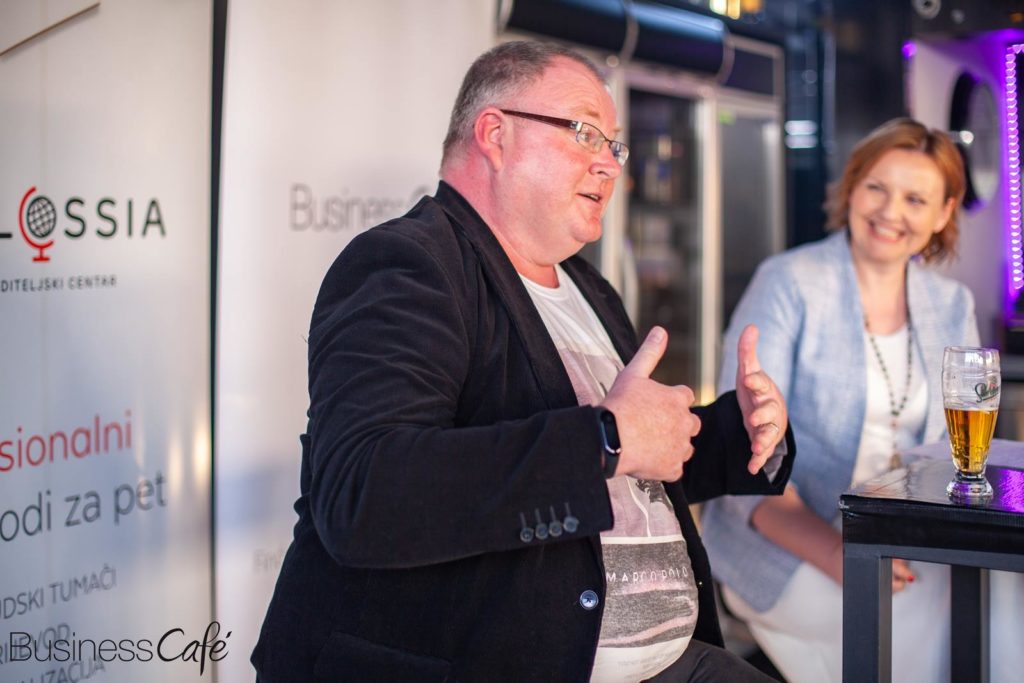
Paul owns several portals, while Natalia is an EU consultant who also runs Entrepreneur Academy in Ogulin.
The conclusions were that we should all STOP complaining, accept the term UHLJEB for the moment as some kind of a TAX which we all need to pay for living here, and do what we can.
Nepotism and injustice were identified as the biggest problems and the reason why people emigrate. Additionally, many things don’t move forward because the problem starts at the lowest political level. Also, although Croatians complain a lot, it seems that they are too passive.
Paul finished his talk by saying: “Don’t expect to change Dalmatia/Croatia, rather expect Croatia to change you.”
He said we all go through three phases, especially foreigners upon their arrival. First, there is joy and you are happy to be here and you enjoy the beauty and quality of life here. Then there is sorrow – you can’t believe this is happening. And finally, you accept reality and you do something to change at least one thing in your bubble or area of influence.
He said he has seen many initiatives - holding Business Cafés being one of them – and that there is a need to connect them all to show that there definitely is a better and more positive Croatia.
We all agreed there were many initiatives and entrepreneurial stories which should be shared and presented daily because that is the way mindset is changed, and that children should be shown that success is possible here as well.
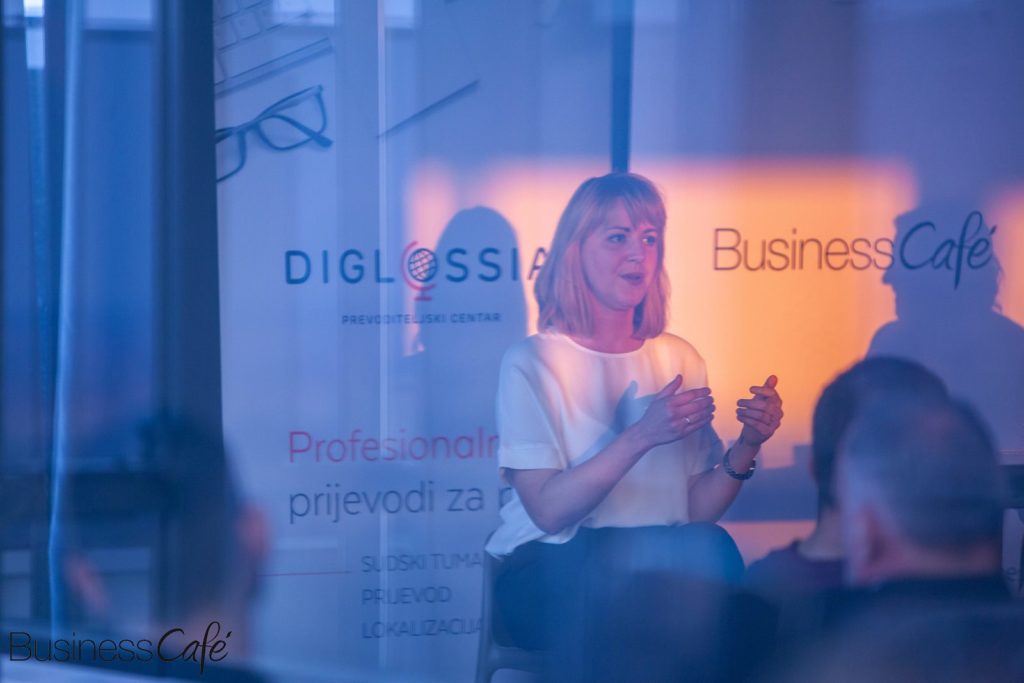
After their talks, the audience had a chance to talk to Paul and Natalia. Attendees also used the opportunity to present themselves, connect with others and network.
Besides entrepreneurs, representatives of the US and Swedish Embassy were present at the event as well.
Sponsors are Diglossia Translations Company, Lisak Catering, as well as Domelly. Media coverage is provided by Total Croatia News, Croatia2go, Samo pozitivno, Media Marketing, and WIA.
Business Café events have been organised for the past nine years, in 7 countries and 25 cities. There have been more than 20,000 visitors, 300 guest speakers/entrepreneurs sharing their stories, more than 30 million euro deals have been made, countless friendships have started up, as well as some partnerships and investments.
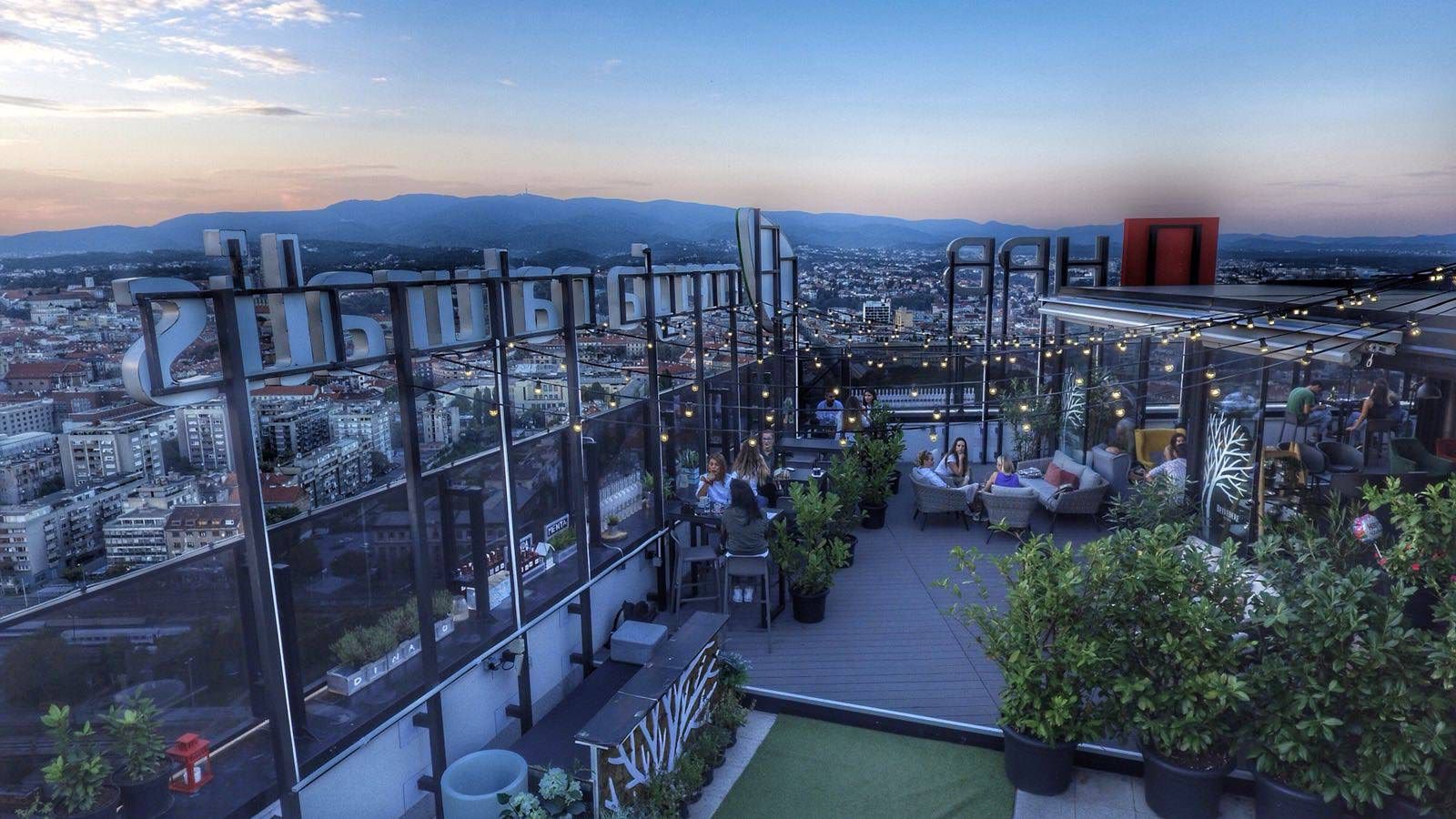
For more info, please visit: www.businesscafe.info
Next scheduled events: June 3rd, August 26th, and October 14th, 2019.
For more information, please contact
Kristina Ercegović, EMBA
+385 91 1555228
This email address is being protected from spambots. You need JavaScript enabled to view it.
To read more about Croatia's foreign entrepreneurs, follow TCN's dedicated page. And if you'd like to be featured, send us an email to This email address is being protected from spambots. You need JavaScript enabled to view it..
Subscribe to the Total Croatia News Weekly Newsletter!
January 7, 2019 - Did you know that Total Croatia News sends out a weekly newsletter highlighting our top stories?
If you didn't, don't fret - but here's a taste of what you missed last week.
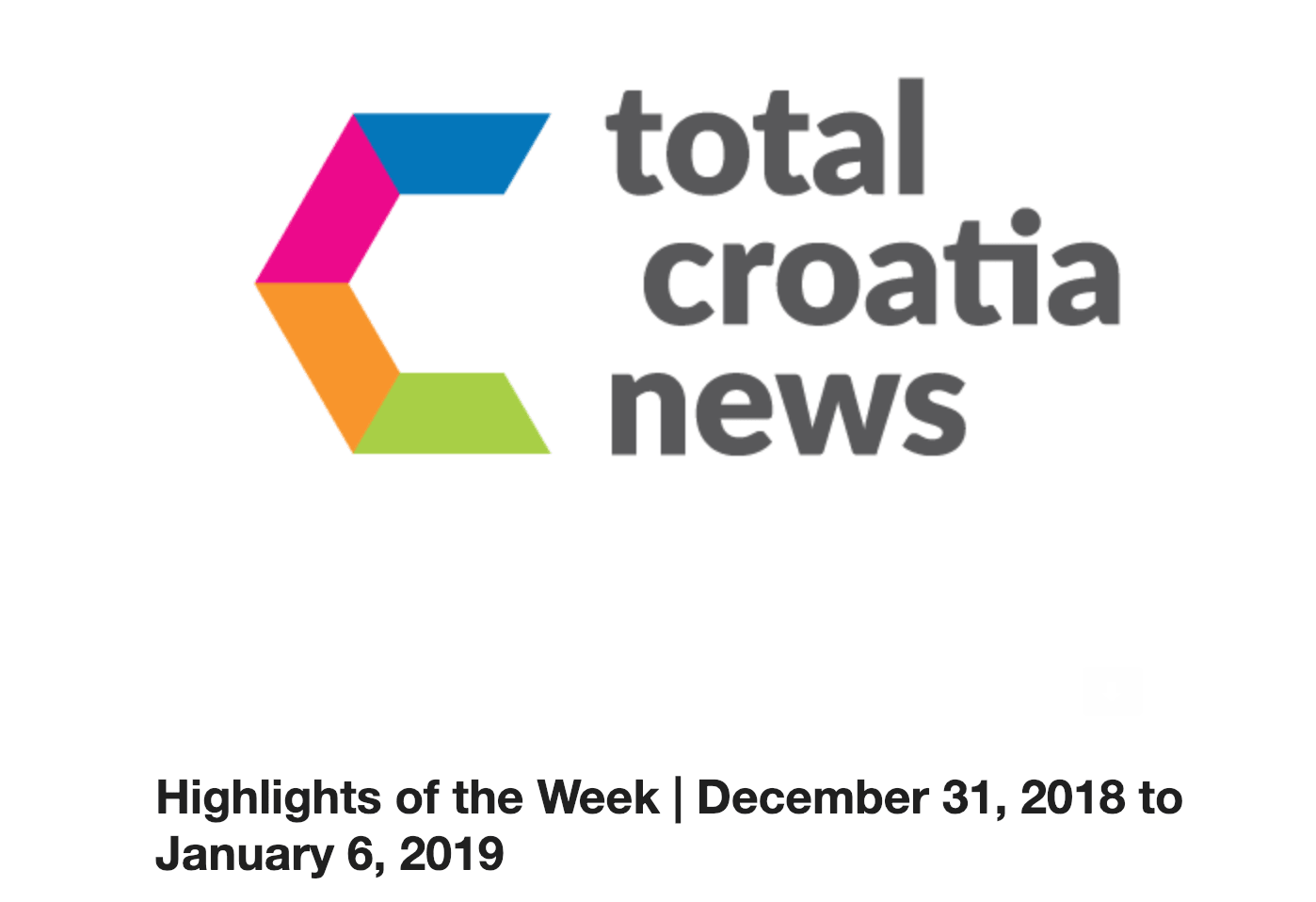

Croatian Prime Minister Andrej Plenković said goodbye to 2018 with a New Year message wishing the Croatians in the country and abroad a happy and successful 2019. He also recalled the measures his cabinet has taken in the outgoing year to raise the living standards.
The 2019 political forecast shows political leaders and voters will have an exciting year, as there are the elections for the European Parliament in May, followed by presidential elections next winter, which will be just a warm-up for parliamentary elections no later than 2020.
Some of the first news we heard in the new year was that US Secretary of State Mike Pompeo and Israeli Prime Minister Benjamin Netanyahu did not find a solution for the sale of Israeli F-16 fighter jets to Croatia at their meeting in Brazil. Serbian tennis star Novak Đoković called for reapproachment with Croatia, calling the country neighbours and the people his own.
And to end this week in politics, the new Franjo Tuđman statue in Zagreb was desecrated with controversial hammer and sickle graffiti, which was sprayed by unknown vandals. Zagreb's new monument dedicated to Dr. Franjo Tuđman was officially unveiled on the 19th anniversary of the death of the first Croatian president.
Croatian Prime Minister Promises Successful 2019
Croatia's 2019 Political Forecast
USA and Israel Fail to Agree on Sale of F-16 Fighter Jets to Croatia
Serbian Tennis Star Đoković Calls for Rapprochement with Croats
Zagreb's New Franjo Tuđman Statue Desecrated with Hammer and Sickle
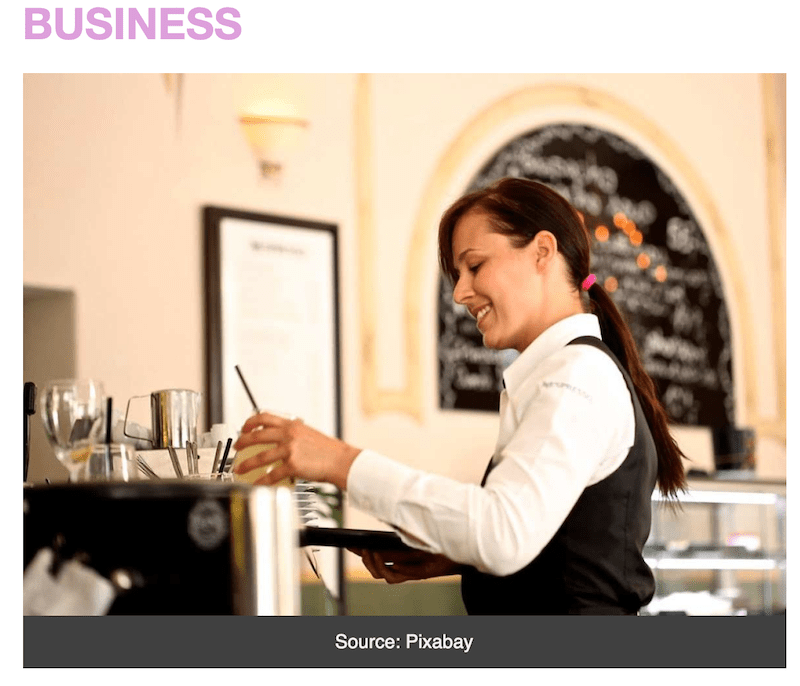
2018 ended with the news that the Agrokor group will get new names. Specifically, the companies in the Zagreb-based Agrokor Group will add the word plus to their names as of 2019 - for instance, the retail chain Konzum will become Konzum Plus, or the mineral water and soft drink producer Jamnica will be Jamnica Plus.
A company to build the cable car on Sljeme in Zagreb has finally been chosen. The Sljeme cable car will come with a price tag of an enormous 299,790,853.96 kuna, which is the VAT-free cost, and the company chosen to go forth and construct the cable care is GIP Pionir, which removed Sljeme's former, old cable car years ago.
The love of cycling and knowledge of CAD programming are the primary tools that Nino Dušak, the entrepreneur and owner of the HardCore Industry company from Varaždin, used to create a unique bicycle frame model. His project implements an innovative approach to solving the problem of constructing downhill bicycles and brings advanced aeronautical and naval technology into bicycle production
The Banker, a magazine which belongs to the Financial Times group and is issued monthly, gave two prestigious awards of recognition to the Governor of the Croatian National Bank, Boris Vujčić, for the year 2018 - one as the best European governor, and the one for the best central banker on a global scale.
And to end this week in business, HZZ is conducting a survey among Croatia's unemployed population on their intentions and readiness to work along the coast in various tourist destinations. Croatian employers, more specifically hoteliers from numerous tourist resorts up and down the Croatian coast are already searching out potential seasonal staff from continental Croatia, and they’re even promising higher wages.
Agrokor Group Companies to Get New Names
Company to Build Zagreb's Sljeme Cable Car Chosen
Varaždin Company Introducing Advanced Technology to Bicycle Production
Boris Vujčić Proclaimed Best European and International Governor in 2018
Croatian Employers Already Searching for Staff and Promising Higher Wages
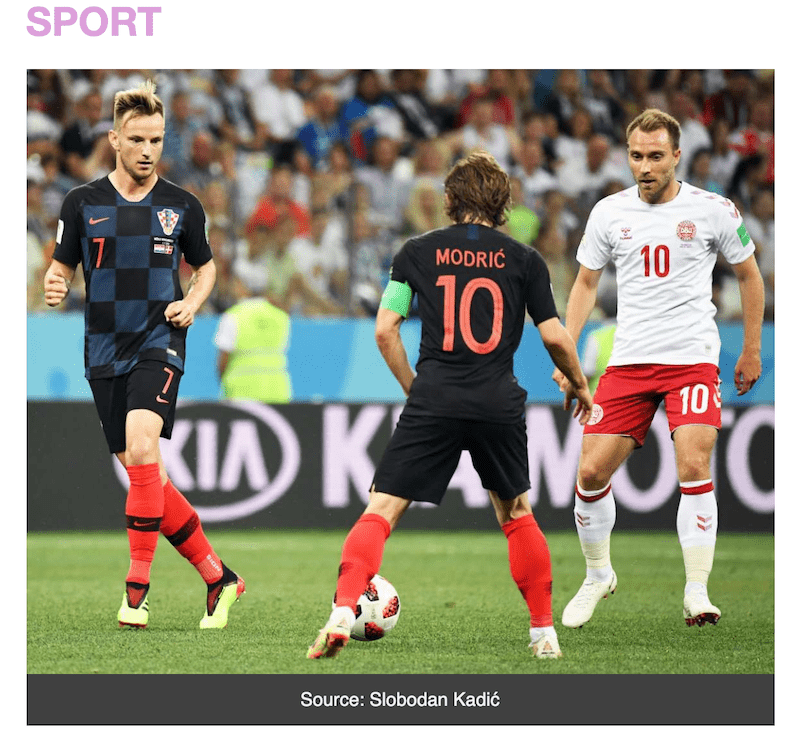
It’s a new year with a slew of new sporting events for Croatian sport. Even though there won't be any major football competitions in the summer, or the Olympic Games for that matter, what can we look forward to in sport this year? Check out our forecast for 2019.
The dream season continued for Luka Modrić, the best athlete in Croatia and the best footballer in the world in 2018, as he added yet another admirable accolade to his collection for 2018. Modrić has thus been named the world's best athlete in the selection of the International Sports Press Association (AIPS).
Just one month before his 40th birthday, Croatian tennis player Ivo Karlović came to his 19th career final at ATP tournaments, making him the oldest finalist of an ATP tournament since 1977. Karlović advanced to the final of the Tata Open in Pune, India, where he lost to Kevin Anderson.
After defeating Montenegro 34:22, the Croatia men’s handball team overcame Italy in their second match of the HEP Croatia Cup in Poreč. The Croatia handball team took first place in the HEP Croatia Cup, which served as the team’s last check-up before the upcoming World Cup in Germany and Denmark.
To end this week in sport, the Snow Queen Trophy was held on Zagreb’s Sljeme over the weekend. American skier Mikaela Shiffrin won the female race while Austrian Marcel Hirscher won the men’s race.
Croatian Sport 2019: What Awaits Us this Year?
Luka Modrić Named World's Best Athlete Ahead of Djokovic and Federer!
Ivo Karlović Does it Again, Becomes Oldest ATP Finalist Since 1977!
HEP Croatia Cup: Croatia Handball Defeats Italy, Wins Tournament
Snow Queen Trophy Kicks Off at Zagreb's Sljeme with Female Skiers!
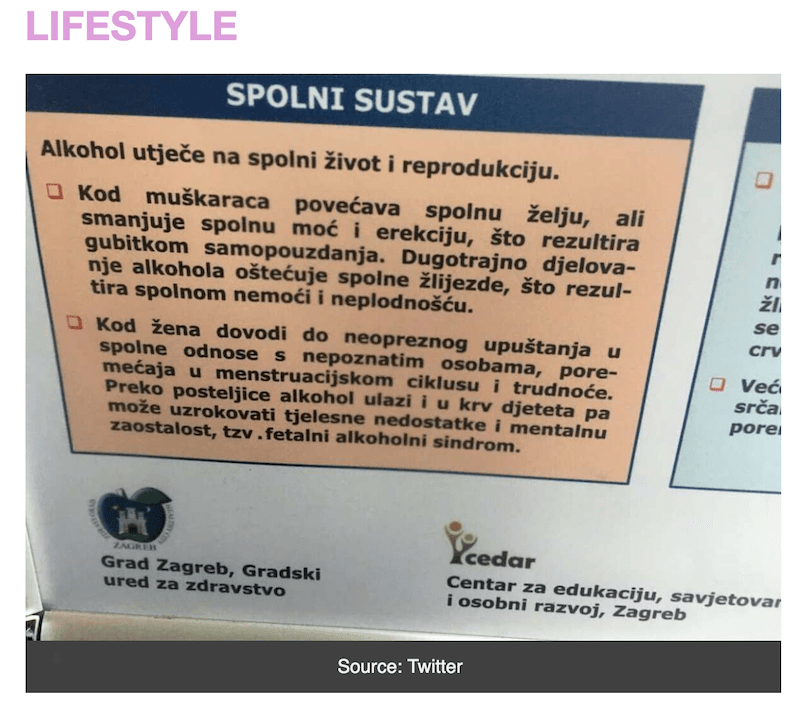
Social networks across Croatia shared a photo of an unbelievable poster which was photographed in one of Zagreb's trams. The “educational” poster in question was supposedly meant to warn users about the harmfulness of drinking alcohol. However, many believe that the posters actually spread sexism. The poster was ultimately removed.
Preparations for the next Ultra Europe Music Festival are underway. Hundreds of people have been tirelessly working on the project that has changed Split - from finalizing and arranging performances to logistics, meetings with city authorities, police, utility services, and more. Joe Bašić, the owner of MPG Live, the alpha and omega of the Croatian Ultra, revealed everything we need to know about the upcoming edition, and just how Ultra got there in the first place.
A rather odd story out of Croatia this week comes from the Bjelovar-Bilogora Police Administration. In the last six months, they have reported two cases of fraud against women in Croatia, aged about 60, by unknown perpetrators, by using false Facebook profiles, representing themselves as US soldiers serving somewhere in the world
This week we met Krešimir Ivančić, the experienced and inspired, talented and successful winemaker from Plešivica, who promoted their winery's new sparkling wine - the Coral Griffin. The Ivančić winery currently has nine labels, including five sparkling wines, three white wines and one red wine.
To end this week, the Inland Dalmatian town of Trilj is giving their residents a rather enticing offer. Since only eight building permits were issued for the construction of family homes in 2018, in Trilj's budget for 2019,300,000 kuna has been allocated to stimulate the construction of family houses.
Sexist Posters in Zagreb Trams Cause Controversy
Joe Bašić: Ultra Europe Expects 160,000 Festivalgoers in 2019
Fake US Soldiers Use Facebook to Steal from Women in Croatia
Coral Griffin, Sparkling Wine from the Adriatic Sea with Unique Label Created by Nature
Trilj Offers Free Building Permits to Encourage Citizens to Stay
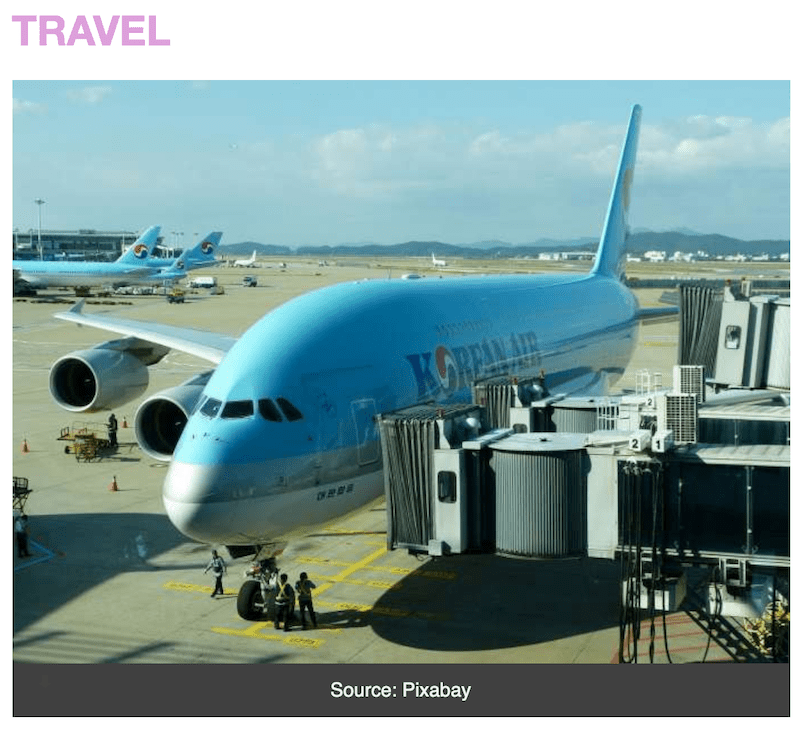
Great news for Irish tourists and the ever larger Croatian diaspora in Ireland, as Croatia Airlines announced it will operate its Zagreb to Dublin service all year.
If you’re driving in Split, we’ve just made your life a whole lot easier. Learn the ins and outs of parking in the Dalmatian capital with our updated 2019 parking guide.
More good news coming out of Split as the deputy mayor announced that a new measure will be introduced following the model of Dubrovnik: the fees for tourist buses entering the center of Split will double, to 700 or 800 kuna, while an hour of parking at the future Kopilica bus station will amount to only ten percent of that amount.
From the beginning of 2019, Korean Air introduced the Dreamliner Boeing 787-9 aircraft for winter operations on the popular Zagreb-Seoul route.The airline thus became the first to fly the Boeing 787-9 Dreamliner on a scheduled flight to Zagreb.
And to end this week in travel, Imotski recorded yet another stellar year in tourism. While 260 accommodation facilities were registered in the area of Imotski last year, most of which were holiday homes, in 2017, there were 173, meaning that 90 new objects appeared in just one year. 2019 should be even better, with the region expecting to reach 300.
Croatia Airlines Turning Zagreb-Dublin to Year-Round Service
Split Parking 2019: Your Guide to Getting Around the City
Split to Increase Entry Fee for Tourist Buses into City Center
Korean Air Introduces Dreamliner for Zagreb-Seoul Winter Operations
Imotski Region Expects Overnight Stays to Increase 25% in 2019
To subscribe to TCN's weekly newsletter, send us an email to This email address is being protected from spambots. You need JavaScript enabled to view it.
Could Croats Ever Unite If They Were Not Under Attack?
November 11, 2018 - Croats in adversity are the most united and determined nation on the planet? So why can't they come together for simple things when nobody is attacking them?
Having been fortunate to have visited almost 100 countries and lived in ten, I have come to the realisation that nobody beats the Croats when it comes to coming together in times of adversity, and when there is a celebration of victory, Croats know how to party like no other nation on Earth.
The scenes in Zagreb with some 550,000 people on the streets waiting to welcome home their heroes were beamed all over the globe, without doubt the most positive image of the country ever projected onto the international stage. As a longtime foreign resident of Croatia, it was a pleasure to watch.
The Croatian team won millions of hearts, as Modric, Rakitic and co all came together with a series of tenacious performances, and the Croats from the tiny country which dared to dream came together to produce one of the greatest World Cup stories of all time.
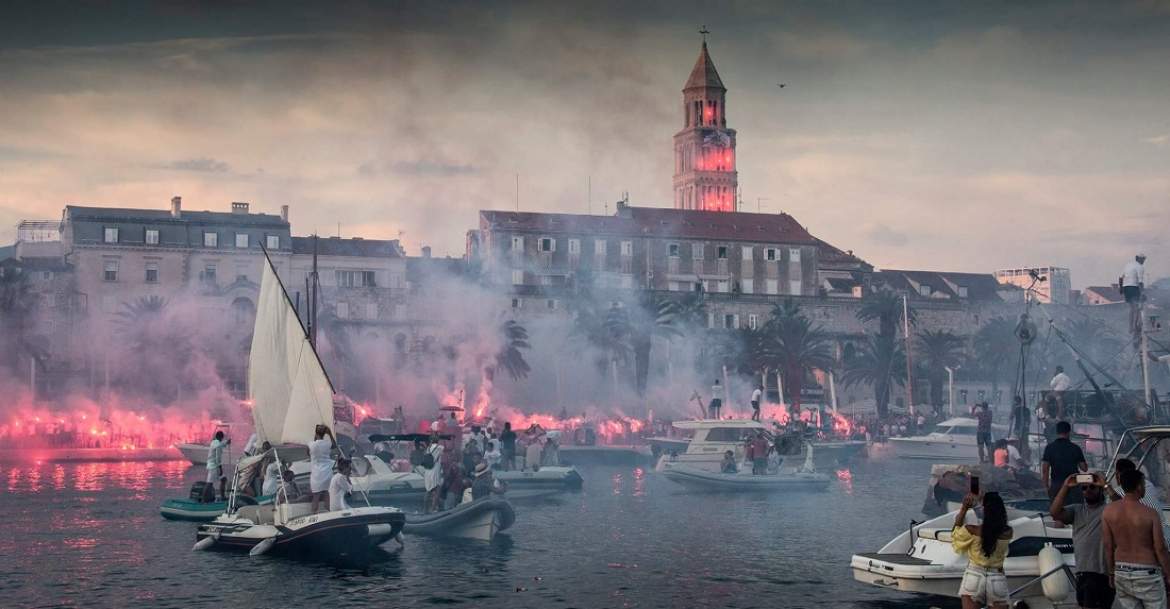
Croats were united once more just weeks later, this time in grief, as the most beloved voice in the country passed away. The maritime funeral cortege from Split to Vela Luka for Oliver Dragojevic was another exceptional outpouring of unity and emotion in adversity - this time the loss of their most beloved singer. One of the most read TCN articles ever was written on the back of it - In Life and in Death, Croatia are World Champions at Celebration.
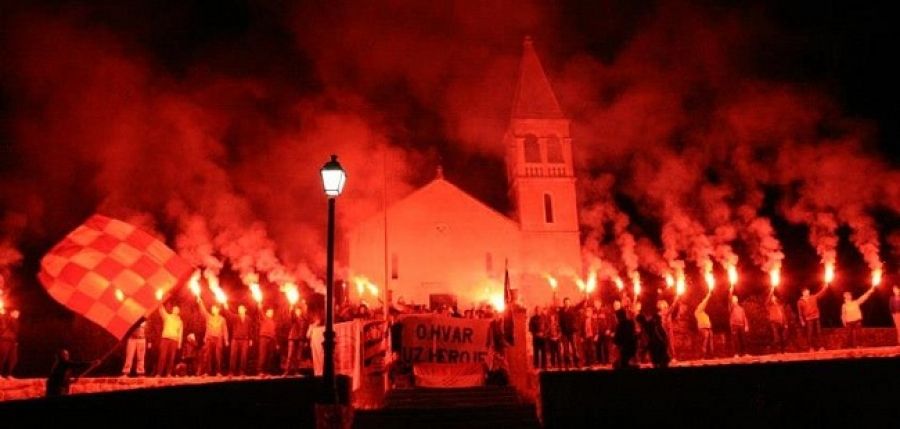
Support for their alleged war criminals in the Hague brought Croats together, and the atmosphere in the country when Ante Gotovina was freed back in 2012 was electric, with church bells ringing out all over the country, as we reported for Google News at the time. This was Jelsa on the night of Gotovina's arrival in the photo above. I often wonder how Croatia would be today if General Gotovina had gone into politics on acquittal. Could he have changed the system, rooted out the corruption and given the bright future for which so many fought and gave their lives?
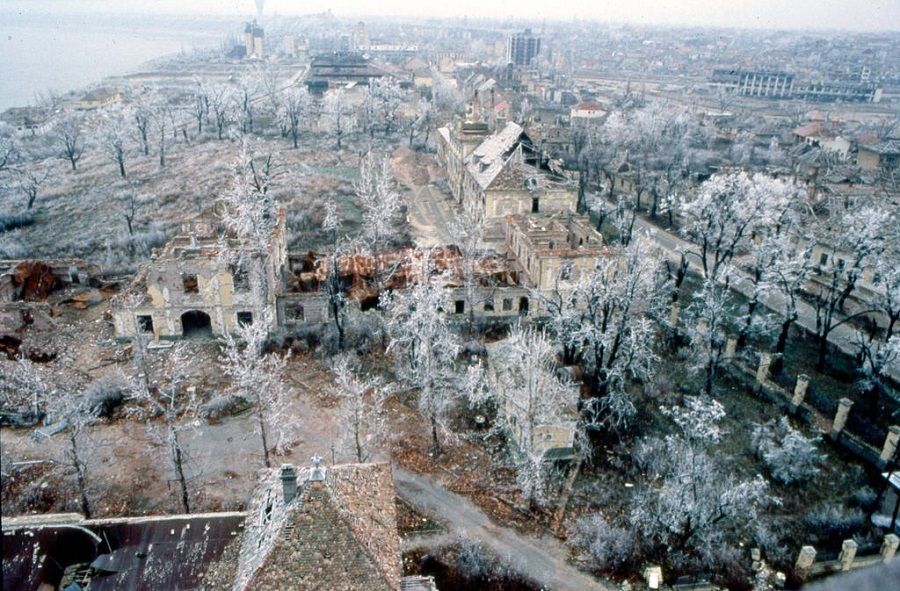
And of course, the great unity of Croats in recent times, during the Homeland War, where they came together under huge adversity and emerged with freedom and an independent country.
An incredible nation, then, these Croats - and one to genuinely admire.
But what happens when nobody is attacking them?
A slightly different story...
One of my favourite statistics when I had a real estate business in Croatia 15 years ago was that in a population of 4.5 million (that was the population just 15 years ago...), there were apparently 3.5 million lawsuits in the country, of which about 90% were property related. There is no property dispute quite like a Croatian property dispute, I have come to learn.
One of the curious realities of life here is that while Croats will fight to the last breath to defend the country or on the football pitch, when it comes to protesting injustice or trying to enact change, there is apathy on a scale I have not seen in any of the other countries I have lived. It is a subject I covered in a recent editorial, Instead of Being Counted as Sheep, Will Croatians Ever Stand Up and Be Counted?
Croats love to complain over a coffee in a cafe, celebrating Croatian tragedies. One of my most interesting experiences on Hvar was listening to locals complaining about one issue, which I agreed with them on. I then wrote about the issue on Total Hvar in English (and it led to change), and far from being thanked, the exact opposite happened - Croatia was being attacked by a foreigner, and rather than thanking me, several locals were united against the foreigner who dared to criticise an aspect of Croatia that they themselves were criticising. As Croats.
Ah, Croatia.
(How Malaysia does it - coming together for the greater health tourism industry good)
The thing that inspired this post was born in Malaysia. At the recent Crikvenica International Healthcare Tourism conference, as well as a specialist seminary on branding Croatia as a medical tourism destination this week in Zagreb with Ilan Geva, Malaysia was introduced as a country with best practices in developing medical tourism.
"We brought all the stakeholders together," explained Malaysia Healthcare Travel Council CEO Sherine Azli. "It was very hard work, and 90% of my job is managing the stakeholders,but by working hard from dedicated medical tourism arrivals hall at our airports, right through the process until the patient departs, all agencies and goverhment departments are working to the goal of giving the best medical tourism experience to the patient. All efforts are coordinated by the Malaysian Healthcare Travel Council, which is a dedicated unit in the Ministry of Health."
If only Croatia could unite in such a way, on so many levels, to work for the common good - what a country we could have. And the issue is not simply one of dealing with state institutions or health tourism - take a look at how Macedonia's winemakers are performing on the international stage versus Croatia.
Croatian Tragedies, Facebook Haters, Agents of Change: Which Croat are You?
November 6, 2018 - Croatians like to complain and protest in various ways, from lamenting Croatian tragedies over coffee and venting on social media, while a tiny few try to make change. Which type of Croat are you?
A couple of years ago, I was contacted by someone working in the private tourism sector who I respect very much and invited to come to a meeting in Zagreb. Several like-minded tourism professionals who wanted to make concrete positive change had the idea to come together and brainstorm for ways to improve tourism in Croatia.
There were three of us at the pub in Zagreb, and a fourth who could not make it. It was a really enjoyable evening, and I felt energised by the enthusiasm they had for their own businesses, as well as a desire to improve things in their country. There were, as there always are in these discussions, examples of the inefficiency of the system and the incompetence of the uhljebby public officials, whose family connections far outweigh their competence to perform the task they are employed to do.
"So how was it last night? What did you guys discuss?" asked the absent fourth member in our Facebook group the next day.
"It was a great night, full of Croatian tragedies," came the reply.
Croatian tragedies - A set of typical circumstances in Croatia that are irritating but can be turned into humour. It is a part of the way of life here, and there is a very popular Croatian tragedies Facebook page for any Croatian speakers.
It is a part of the humour I have come to appreciate a lot here over the years, as locals laugh at the absurdity of life here, have their little vent over a coffee and finish with:
"Croatian tragedies." And a shrug of the shoulder.
I remember that Croatian tragedies Facebook reply for one particular reason, for it told me a little about how much energy the person who said it was really interested in investing in making a change. Not much. And that is not a criticism, as effecting any positive change in this country requires Herculean efforts. For my side, I put a little effort into the initiative for a couple of months, but it soon descended into an initiative which discussed more Croatian tragedies than concrete proposals to get something done. And I repeat, this is not a criticism - it is just the way things are here.
A lot of people comment on how they are surprised about how positive I am about Croatia having lived here for 16 years. Part of the reason for that, I reply, is that I did not know how Croatia really worked until I started Total Croatia News. Ignorance was definitely bliss, and life changed forever when I discovered the cult of uhljeb. I have my days of despair here, just like everyone else, when a good venting over a beer about Croatian tragedies and the unfairness of the system can take over, but I try and limit these conversations as much as possible these days, as they are self-serving and - apart from providing a little humour - they don't tend to lead anywhere and only contribute to the spiral of negativity.
I understand why Croatian tragedies are so popular. Having been brought up in the system that is the reality of daily life in The Beautiful Croatia (note to tourists - it is a GREAT place for a 2-week holiday), as people are so pessimistic about being able to change the system after perhaps trying that it is easier to laugh at the absurdity of life here rather than expending lots of energy in futile attempts to change things.
I get a lot of messages and emails from Croatian readers, mostly abusive, for as we have all learned by now, a foreigner cannot have an opinion in Croatia. But there are a growing number of people who contact me, as they see TCN as an outlet where they can voice their opinions about life here. It is nice to have that increasing engagement, especially from abroad, where second and third generation diaspora are enjoying a new channel of information and opinion about the homeland.
That contact includes a lot of Croatian tragedies, and a lot of Croats who have given up on the country and emigrated, but have a fascination with a foreigner's experience of moving in the opposite direction. If only that culture of Croatian tragedies could be channelled into something more positive.
Working online and writing about Croatia brings me into contact with one of the most vocal groups of Croats - the Facebook haters. I am genuinely admiring their dedication, as well as wondering where they get the time and energy from to get up the pace of their negativity and hatred. It is really impressive. Perhaps less impressive is that I doubt that one opinion online has been changed by the torrent of negativity by the Facebook haters, but I have a constructive suggestion for them if they want to continue filling social media with their hatred, while loving their country. For every hater comment posted on Facebook, pick up a piece of trash from one of Croatia's beaches - we could have the entire coast and 1,244 islands perfectly clean before Christmas.
The third type of Croat is in a very small minority, but a group which I am realising is growing slowly, oh so slowly, but one which represents some hope - the agents of change.
Typically entrepreneurs, these agents of change are people who have come to accept the situation they have been born into, understand that making big change is unlikely to happen soon, and have decided to focus on the achievable in their field. Often this means working outside of the system and bypassing official bodies which only bog things down. This for me is one of the most exciting parts about living in Croatia today - watching these fearless young entrepreneurs navigating their own way and succeeding with minimal contact with the State. And while Croatian tragedies do come up over a beer from time to time, the focus is on trying to be positive and move things forward.
These agents of change need to be supported, and if they start to succeed and win bigger battles, maybe more people will swap the comfort of chatting about Croatian tragedies to get involved in helping make more changes. And with the Facebook haters keeping the beaches spotless, what a country The Beautiful Croatia could be then.

